education secondary

CRC Caroline Springs - pages 32 & 33
De La Salle College - pages 38 & 39
Haileybury - pages 50, 51 & Back cover
Sacre Coeur - pages 98 & 99
School locality guide - page 143
MacKillop College - pages 4, 5, 146 & 147



Noone - page 85
Xavier College - pages 140 & 141
For further information refer to pages 2, 3, 120 & 121.


Issue 68 • November 2023 • Est 1999
Photo provided with the compliments of St Monica’s College, Epping

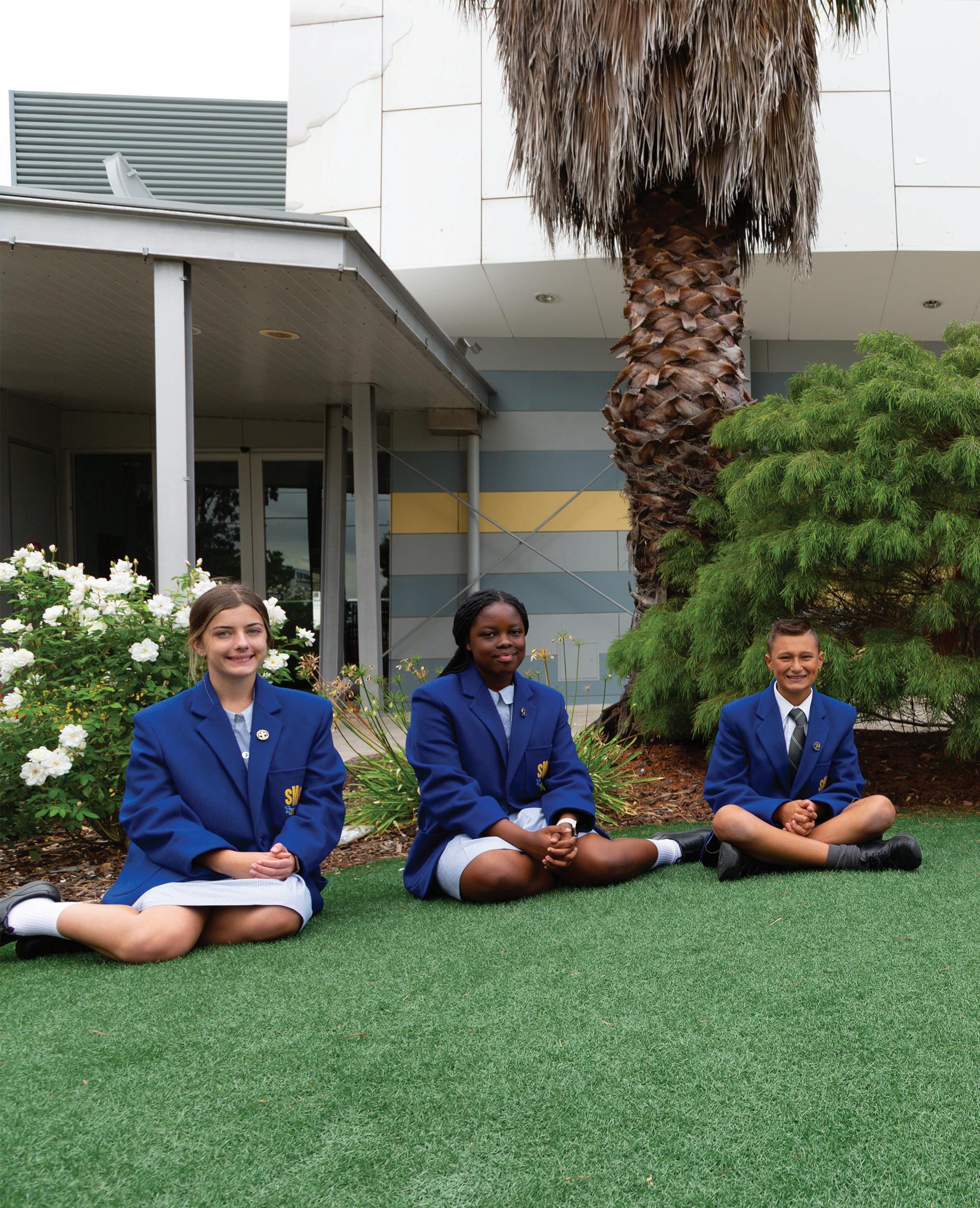
Secondary Education 2 St Monica’s College, Epping Enrol. Online. Anytime. 12625741-AI44-23


Secondary Education 3 12625752-AI44-23 “Every student matters, every moment counts” T: 03 9409 8800 | www.stmonicas-epping.com Junior Campus Years 7-9 | 400 Dalton Road, EPPING VIC 3076 Senior Campus Years 10-12 | 16 Davisson Street, EPPING VIC 3076


Secondary Education 4 12635435-JC44-23





Secondary Education 5 12613112-JC44-23
Assumption College
START your learning journey with Assumption College. Enjoy smaller class sizes and an individualised learning program that gives your child choice and an abundance of opportunity.
Assumption College is a co-educational day and boarding school providing an inclusive learning environment with a view to preparing students for all aspects of life. We have redefined the way we deliver our curriculum to ensure students can flourish, grow and be diverse learners.
We have replaced the traditional four-year curriculum across Years 7 to 10 with our groundbreaking ‘myMAP’ program aimed at fostering Mastery, Autonomy and Purpose to enable a culture of connection, ownership, and engagement with learning.
Students have access to multiple experiences and hundreds of different learning pathways allowing them to set their learning pace, targets, and itinerary.
Assumption College has a unique learning and teaching environment. At 100 acres (over 40 hectares) our generous school property gives access to: impressive sporting grounds, a new community pavilion, a working farm, a MasterChef like kitchen and the Marlhes Restaurant, well-resourced library, dance studio, drama and music spaces, arts and technology centre, animal studies centre, gymnasium (incorporating fitness room) and boarding houses
- all encouraging diverse skill development. Our Boarding students can choose the sevenday full-time boarding option or return home at weekends with the five-day academic boarding program. They can take advantage of additional academic support, tutoring and study support. Healthy and nutritious meals are prepared on-site by a chef.
Boarding families at Assumption College come from all over Australia including regional Victoria and metro Melbourne. Our Boarders can access the finest education while living in a secure and supportive environment.

Learn more about us by visiting our website or by reaching out to our friendly Community Relations Officers.
For more information, visit assumption.vic. edu.au. Find out what makes us a College of choice. A transformative Marist community.
Secondary Education 6
We have redefined the way we deliver our curriculum to ensure students can flourish, grow and be diverse learners.”

12619048-AA44-23
Berwick College
BERWICK College commenced in 1977 with the motto “Crescam - I shall grow” and today, through our strong emphasis on excellence in teaching and learning, our students continue to demonstrate growth.
I am very proud of this College; our inclusive education, our provision of pathways for all students, our multi-generational connections and our commitment to delivering successful outcomes for our students.
Our 2022 Dux, Zoe, achieved 97.9 and our students achieved excellent VCE results, featuring in Top Designs, Top Class Dance and the State Schools Spectacular. Students in elite programs such as High Achievers’, Basketball Academy, Dance Academy and Instrumental Music are excelling and can access many exciting opportunities.

The Victorian Education Excellence Awards recognise inspirational teachers, principals and education support staff who improve schools and support children and young people. Berwick College’s outstanding staff have been consistently recognised as winners and finalists in the following categories - Outstanding Secondary Teacher (Finalist 2020, Winner 2018), Outstanding Early Career Teacher (Finalist 2022), Outstanding Koorie Education (Winner 2017, Winner 2021), Outstanding Education Support - Wellbeing Team (Finalist 2016 and 2017) and Learning Support Team (Finalist 2021) and Outstanding Business Manager (Finalist 2019 to 2021).
Dedicated teachers, wellbeing staff, career guidance and transition programs ensure our students are well supported and cared for throughout their school life. Activities and events are held throughout the year to support our students to build organisational and study skills, develop strong peer relationships, enhance resilience and empathy, and to build a sense of connectedness to our school community.
Our Health and Wellbeing Centre ensures all students have the best possible care for trauma, mental health and physical wellbeing, while support is provided for parents and carers.
Learning Teams look after our students where we get to know each student, tracking their achievements and encouraging them to make a
difference in the wider community through supporting a charity of their choice.
Berwick College offers an extensive range of school and inter-school sporting activities in outstanding sporting facilities, including hockey pitches, tennis courts, netball courts, the basketball stadium and fitness gym, and access to the City of Casey Athletics track, Edwin Flack oval and Leisure Centre.
“Our College has a vibrant history in the Berwick community and global connections to alumni in a wide variety of fields. Prospective parents and students are warmly invited to our Information Evening on Wednesday, 1st May 2024 at 6:00pm and College Tours are available on Wednesdays at 9:30am throughout the year” Bookings available through www.berwickcollege.com.au
Secondary Education 8
Dedicated teachers, wellbeing staff, career guidance and transition programs ensure our students are well supported and cared for throughout their school life.”
Basketball Academy
BOYS—Third straight

GIRLSUSA Tours
High Achievers Program
Instrumental Music
Elite Programs
BERWICK College



Dance Academy

State Schools


Spectacular
DanceLife UniteNew York Dance Study Tour
I shall grow and today, through our strong College Tours available Wednesdays at 9:30am
Secondary Education 9
Victorian Excellence
Winners 2016 2017, 2018 & 2021 Finalists 2019, 2020, 2022
Award
2024 Parent
12619076-AI44-23
Blackburn High School
BLACKBURN High School is a co-educational Government Secondary School with a long tradition of excellence in delivering a dynamic curriculum that meets the diverse needs of all our students. Our positive school culture inspires students to flourish academically, emotionally and socially, and to achieve outstanding educational outcomes.
The school is situated on a spacious 12-hectare site with extensive gardens and sporting facilities, including our covered outdoor learning area, multiple sports courts, gymnasium and fitness room. Our state-of-the-art STEM Centre features fifteen science laboratories and specialist technology classrooms, including digital multimedia, robotics design, materials technology and a 3D printing laboratory, all centred around a central open-air courtyard. Inside these exceptional facilities, we foster our students’ creative and critical thinking with a school-wide STEM program of design thinking, problem solving and extra-curricular opportunities such as the STEM Club and Robotics Competitive Team.
Blackburn High School is a vibrant innovative caring and inclusive space where students work together to become successful learners, confident and creative individuals, and active citizens. Our students are encouraged to be leaders and participate in decision making to shape the future of our school. Our student Leadership Program ensures that a range of diverse voices are heard and considered.
Our online platform XUNO gives parents and guardians access to student attendance, assessment information and communication.
We provide a comprehensive challenging curriculum that encourages a strong work ethic, as well as many extra-curricular opportunities that enhance school life. These include a variety of lunchtime Clubs, Robotic Competitions, Camps, our highly acclaimed Instrumental Music Program, a successful PE Program that includes Interschool Sports and Duke of Edinburgh Award, STEM (Systems, Technology and Mathematics), French and German Language Programs, and wide variety of Arts programs.
Our new VCE Centre provides an area that
Students in Years 10 to 12 has flexible spaces for collaborative learning and quiet study.
In Years 11 and 12, we provide an extensive range of studies in the Victorian Certificate of Education (VCE) and VCE Vocational Major. Early-start VCE subjects are offered for students who display the required learning behaviours, commitment and desire to extend themselves at VCE. In addition, some Year 12 students may be offered an opportunity to study a university subject.

Secondary Education 10
Our positive school culture inspires students to flourish academically, emotionally and socially, and to achieve outstanding educational outcomes.”
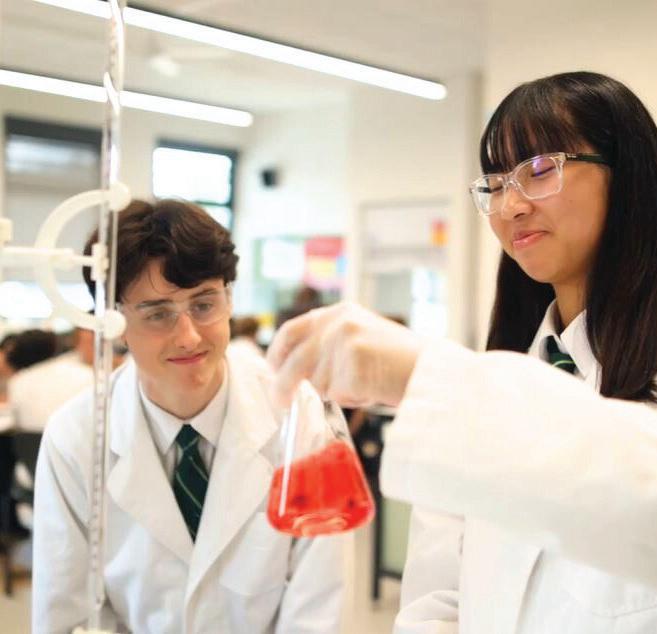

Secondary Education 11 12613091-SM44-23
Boronia K-12 College
BORONIA K-12 College is committed to developing students into responsible members of the local, national and global community. Throughout all stages of schooling we aim to develop learners that strive to be:
■ Skilled communicators
■ Constructors of knowledge
■ Real world problem-solvers
■ Ethical users of technology
To achieve this, we offer quality teaching and learning programs delivered by skilled and innovative professionals. Our contemporary buildings and grounds are second to none, providing a stimulating learning environment where students are able to maximize their potential.
Transitioning into Boronia K-12 College, students experience a challenging, differentiated curriculum designed to allow them to demonstrate their abilities and progress their learning.
Ensuring Year 7 students are happy and confident is a priority, supporting them with a dedicated team of experienced teachers in our Year 7/8 building. Within this space, majority of Year 7 classes are held, with students developing a sense of ownership and pride over their environment, and a sense of
belonging and community.
Our Years 7-9 programs build foundations for success. We emphasise core literacy and numeracy skills across the curriculum, with students accessing Spanish as their language study. Students have expanding opportunities to refine pathways by selecting an increasing number of electives in Year 9 and beyond.

Substantial research has been conducted into engaging Year 9 students, preparing them for the demands of their final years of school. In response, alongside our school data, we have shaped a Year 9 program to develop the academic, creative, physical and emotional aspects of our students through engaging, inquiry based learning experiences, fostering independence and reigniting a passion for learning. Students have the opportunity to participate in Leadership Development programs, City Experience, and community based projects.
Transitioning into Years 10-12, opportunities to refine pathways open, and students are provided a range of subjects from all area of the VCE, VCE Vocational and VET curriculums.
Year 10’s encouraged to undertake VCE or VET unit in preparation etc.
Secondary Education 12





Secondary Education 13 12568952-MS14-23
NOW FOR 2024 Limited vacancies remain for 2023
ENROL
Braybrook College is a proudly multicultural, single campus school with a strong academic reputation offering extensive programs from Years 7 - 12. Our underpinning philosophy is that students should have opportunities to develop their skills to the optimum level. Students are supported across a broad range of areas and the more talented students have the opportunity to be selected for one of our advanced classes.




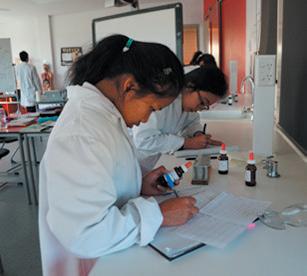

Our college is the ideal size to provide the programs required to meet the varied needs of students: academic opportunities which will take students on to University Courses or Vocational Educational Training; Music and Instrumental Music through to Year 12; extensive Sports and Outdoor Education programs along with a support structure that encourages students to strive for individual excellence. This breadth of opportunity has resulted in some outstanding results in recent years where our VCE performance has regularly been above the state average. Clearly, the individual attention and tuition Braybrook College provides students, especially in the senior years, results in excellent outcomes including a full range of post-secondary options.
Whilst focusing on the learning outcomes for students our push to provide modern equipment and facilities is evident. Each year we aim to complete at least one major building project. In recent years these have included a state of the art Science Centre, the re-modelling of our gymnasium and a new Art Precinct. Our next project, beginning this year, is the building of an auditorium/lecture theatre. Additionally, the college has prioritised information communication technology. We have a ‘Bring Your Own Device’ program across all year levels as well as computer laboratories for specialist subjects. Teachers and students also have wide access to electronic data projectors and/or interactive whiteboards installed in all rooms throughout the college. The parent community is able to easily communicate with the school via our online parent portal (Compass).
The college is proud of the way in which parents, students and staff work together to ensure an ongoing commitment to achieving excellence. We pride ourselves on being able to offer personalised attention in a safe, secure environment.
If you would like to enquire about the college programs contact the Assistant Principals, Ms Arlene Bailey, Ms Mary Liokos or Mr Sean McMahon on 9312 2900.
Secondary Education 14
12625162-RR44-23
TWILIGHT EXPO
Wednesday 6th March, 2024 5:00pm - 7:00pm
Tour of College facilities and faculty demonstrations Opportunities to meet key personnel

YEAR 7 SCHOLARSHIPS
Scholarships are presented in the 4 areas of: ACADEMIC ACHIEVEMENT MUSIC / PERFORMING ARTS / CREATIVE ARTS LEADERSHIP SPORT
ADVANCED PROGRAM - SEEK
(Select Entry for Enrichment and Knowledge)
YEAR 7 SEEK CLASS - 2025
Applications close early Term 2, 2024 ACER administered test will be held at Braybrook College



VCE SCHOLARSHIPS
Scholarships are awarded for Academic Excellence to students entering Year 11

2024 COLLEGE TOURS
Please contact the college for a booking on these dates.
Address: 352 Ballarat Road, BRAYBROOK 3019 Phone: 9312 2900
FAX: 9311 7668
Email: braybrook.sc@edumail.vic.gov.au
Web: www.braybrooksc.vic.edu.au
Secondary Education 15 ENROLMENT ENQUIRIES WELCOME
TERM 1 TERM 2 Thursday Monday Wednesday Tuesday Friday 14th March 18th March 27th March 30th April 10th May 12617949-RR44-23
Benefits of extracurricular activities
EXTRACURRICULAR activities play a crucial role in the holistic development of school students. These activities, which encompass a wide range of interests and passions beyond the traditional academic curriculum, offer students numerous benefits that extend far beyond the classroom walls.
From boosting academic performance and fostering social skills to nurturing personal growth and building character, participation in extracurricular activities equips students with essential life skills and helps shape them into well-rounded individuals.
This article explores the transformative power of extracurricular activities and highlights the manifold advantages they provide to school students.
Contrary to popular belief, engaging in extracurricular activities can have a positive impact on academic performance.
Research indicates that students involved in extracurriculars often exhibit higher levels of motivation, better time management skills, and improved organisational abilities.
Participation in activities such as debate clubs, science fairs, or mathematic competitions stimulates intellectual curiosity and enhances critical thinking and problem-solving skills. Students who engage in extracurriculars are more likely to develop discipline and perseverance, attributes that contribute to academic success.
These activities provide a practical application of concepts learned in the classroom, reinforcing academic knowledge and deepening understanding.
Extracurricular activities can also offer opportunities for mentorship and access to resources that extend beyond the school environment, further enriching the learning experience.
Extracurricular activities provide an ideal platform for students to develop crucial social skills that are essential for their personal and professional lives.
Through teamwork, collaboration, and interaction with peers who share similar
interests, students learn to communicate effectively, resolve conflicts, and build relationships. Whether it’s participating in team sports, joining a music ensemble, or working on a community service project, students gain exposure to diverse perspectives, fostering empathy and cultural sensitivity.
These activities also promote leadership skills, as students often assume roles of responsibility, such as team captains, club presidents, or project coordinators. By engaging in extracurricular activities, students develop self-confidence, assertiveness, and the ability to adapt to different social contexts, qualities that are vital for success in the future.
Extracurricular activities serve as fertile ground for personal growth and character building. These activities encourage students to explore their interests, discover their passions, and develop a sense of identity. Whether it’s pursuing a hobby like painting or learning a musical instrument, extracurriculars provide a creative outlet for self-expression, fostering a sense of fulfillment and purpose. Furthermore, these activities teach students resilience and perseverance, as they often face challenges and setbacks along the way.
Secondary Education 16
From boosting academic performance and fostering social skills to nurturing personal growth and building character, participation in extracurricular activities equips students with essential life skills and helps shape them into well-rounded individuals.
Through practice, dedication, and the pursuit of excellence, students develop a growth mindset, embracing failure as an opportunity to learn and grow. Extracurricular activities also instil important values and virtues such as discipline, integrity, and teamwork. In sports, for example, students learn the value of fair play, respect for opponents, and the importance of teamwork to achieve common goals. In clubs and organisations, they learn to navigate responsibilities, manage time effectively, and develop organisational skills. These activities provide a platform for students to learn from mentors and role models, who impart valuable life lessons and guide them towards ethical decision-making.
Beyond the school years, the skills and values gained through extracurricular activities contribute to college admissions and career success. Participation in these activities demonstrates a commitment to personal growth, a willingness to step outside one’s comfort zone, and the ability to manage multiple responsibilities simultaneously.

Extracurricular activities offer students a myriad of benefits that extend far beyond the academic realm. From enhancing academic performance to fostering social skills and nurturing personal growth, these activities play a
pivotal role in shaping well-rounded individuals. By participating in extracurriculars, students develop skills and qualities that prepare them for the challenges of the future, both academically and personally. It is imperative for educational institutions and parents alike to recognise and encourage the power of extracurricular activities, ensuring that students have ample opportunities to explore their interests, pursue their passions, and grow into confident and capable individuals.
Secondary Education 17
Participation in these activities demonstrates a commitment to personal growth, a willingness to step outside one’s comfort zone, and the ability to manage multiple responsibilities simultaneously.
The Age celebrates schools that achieve outstanding improvement in their VCE results, examining data from 2013 - 2022. Bundoora Secondary College was the government school in Northern Melbourne of schools that Excel 2023.
Ikigai, the Japanese concept of finding life’s purpose, is an unexpected tool for a Victorian high school.
But for Bundoora Secondary College, the concept is one of the driving forces behind the school’s revival and its students’ success. Building on the Templestowe College model of student-led learning, Bundoora places a heavy focus on the individual, defining interests and goals from their first year and electing a mentor teacher who stays with each student until graduation.
It has paid off. Less than 10 years after the school was in danger of closing, Bundoora Secondary has been awarded The Age’s 2023 Schools that Excel winner for the northern government area for its sustained improvement in VCE results.
Its median study score last year reached a 10- year high of 29, seven points higher than 2013. The percentage of students with a study score 40 or above also surged to a 10-year high of 4.4. Principal Anesti Anestis says the results are just a “pleasant byproduct” of the school’s resurgence. “The result isn’t what drives us,” he says. Kids finding their passion, their purpose and taking those next steps confidently with a high degree of independence and a high degree of resilience. That’s what we’re on about.”
Bundoora Secondary is one of only four public schools in Victoria to use the Empowerment Education model, a consultative approach that lets student choice lead education pathways.

Maths and English are the only compulsory subjects at the school. Other classes have been developed by teachers to combine core curriculum areas into new subjects like “Are we eating the environment?” and “How do I turn my ideas into a business?”.
Outside, a new Science and Sustainability Centre, permaculture farm and community garden will be finished by 2024. Students, teachers and community members visit the school on the weekend to care for the permaculture garden, cows, goats, chickens, and reptiles. Teachers too are encouraged to identify and follow their passions.
Brian Dani ells, assistant principal of teaching and learning, came to the school to pursue his interest in agriculture and environmental education. He co-developed the school’s working in wilderness course, which covers conservation, zoology and ecology
Bundoora has now received over $350,000 in grants to further stimulate urban agriculture and environment management studies, by offering VET pathways for all northern Melbourne schools.
“Our school philosophy, has shown to be successful now with our results. People are engaged and empowered in their learning, can learn anything,” Anestis says.

Year 11 student William Adcock came to Bundoora in year 9 and says it was “one of the best decisions of my life”.
“You get the freedom to choose what you learn from the start,” he says.
“This school prepares students for their life.”
Read the full article: https://www.theage.com.au/national/victoria/schools-that-excel2023-find-out-your-school-s-results-20230707-p5dmje.html
Secondary Education 18 12625753-AV44-23
Has average VCE student performance at your school changed in the past 10 years? Numbers of students enrolled in year 12 subjects
Discover the Bundoora Difference

Empowering a lifelong love of learning, to thrive in a rapidly changing world


Are more students achieving stellar subject scores?

Numbers of students enrolled in year 12 subjects

Percentage of study scores that were 40 or above

Schools that Excel Winners 2023


Recipients of this year’s awards
Bundoora Secondary College
Hume Anglican Grammar

Waverley Christian College - Wantirna
McClelland Secondary College
Balcombe Grammar School
Victoria University - St Albans
Lowther Hall Anglican Grammar School
Horsham College Government
Sacred Heart College Yarrawonga
and Rural Victoria
Secondary Education 19
School Sector Region
Government Northern Melbourne
Non-Government Northern
Government Eastern Melbourne
Melbourne Auburn High School
Non-Government Eastern
Melbourne
Government
Southern Melbourne
Non-Government Southern
Melbourne
Government
Western Melbourne
Non-Government
Western Melbourne
Regional and Rural Victoria
Non-Government Regional
Bundoorasc.vic.edu.au
study score Statewide median VCE score Median score 32 30 28 26 24 22 20 18 2013 2014 2015 2016 2017 2018 2019 2020 2021 2022 60 29 60 29 12617942-AV42-23
Median VCE
Percentage 5 4 3 2 1 0 2013 2014 2015 2016 2017 2018 2019 2020 2021 2022 Subjects (and number of students) in which this school achieved the most 40+ scores last year: Engineering Studies (VCE VET) Further Mathematics (1) Laboratory Skills (VCE VET) 60 4.4% 60 4.4%
Students and Problem Solving
A POPULAR theory says it’s best for students learning a new topic to tackle problems on their own before they’re taught the known method. But a recent study suggests this approach can backfire – especially when there’s a risk of information overload.
The study, led by PhD candidate Greg Ashman of UNSW Sydney, suggests that when new learning places high demands on students’ working memory, it’s better to explicitly teach them first, and let them attempt to apply their knowledge to problem-solving afterwards.
The study taps into fierce debates over the role “productive failure” has in student learning. Research on productive failure has shown that in some cases, letting students try to solve problems before teaching them how has benefits: these include giving them a chance to draw on their existing knowledge, becoming aware of gaps in this knowledge, and engaging more deeply with what they’re then taught.
But the study’s results, says Ashman, suggest that this approach does not work when the problem-solving requires students to pull together lots of new pieces of information to arrive at a solution.
In this case, students run the risk of information overload. This is because there is a limit to how much information our working memory can deal with at once. Because of this, says Ashman, it is helpful to store some of the information we’ll need in our long-term memory before we attempt to solve complex problems.
Ashman’s study was based on two experiments. In the first, researchers split 64 year 5 students tackling science problems on lightbulbs and energy use into two groups: one group had a go at the problems before having an interactive lecture on the effective approach. The other group had the interactive lecture first, then attempted the problems.
At a later date, both groups were given another go at problems based on the same knowledge to see who would do better. The results were clear: the students who had the interactive lecture first scored higher. A similar experiment was run again with a separate group of 71 students, but with slightly more complex problems. The results in this case were even more decisive.
But the study does not rule out problem-solving
as a learning approach. The problems attempted in this study involved a high number of elements that needed to be processed in the learners’ working memory.
Ashman thinks this may be why the “productive failure” approach was ineffective. But it may still be beneficial in situations where the working memory has only a small number of elements to interact with, he said.
The current understanding is that the working memory has a limit of around four elements when processing information. Any more elements constitute a “high” level of interaction. Long-term memory has no known capacity limits. Once the working memory processes new information, it is stored in the long-term memory, and can be transferred back to the working memory whenever required.
“The purpose of education is to allow learners to store information in long-term memory,” said Ashman. “Once stored, we are transformed in our ability to act. But before being stored, new information must be processed by our working memory, which has limited capacity and duration.”
“When we’re teaching students how to solve problems with lots of interacting elements, we should start with explicit instruction before getting the class to attempt the problems.”
Greg Ashman et al. (2019). ‘Problem-solving or Explicit Instruction: Which Should Go First When Element Interactivity Is High?’, Educational Psychology Review.
For more information or an interview, please contact Greg Ashman of UNSW Sydney at greg.ashman@gmail.com. (Email message preferred, as Greg Ashman is a full-time teacher.)
Secondary Education 20
The purpose of education is to allow learners to store information in long-term memory.
CAMBERWELL HIGH SCHOOL

Camberwell High School has had a proud tradition of excellence in education since 1941. In addition to promoting the attainment of strong academic outcomes, our purpose is to prepare all students to be active, engaged, future problem solvers. Our Learning Dispositional skills are built into all curricular and co-curricular activities.
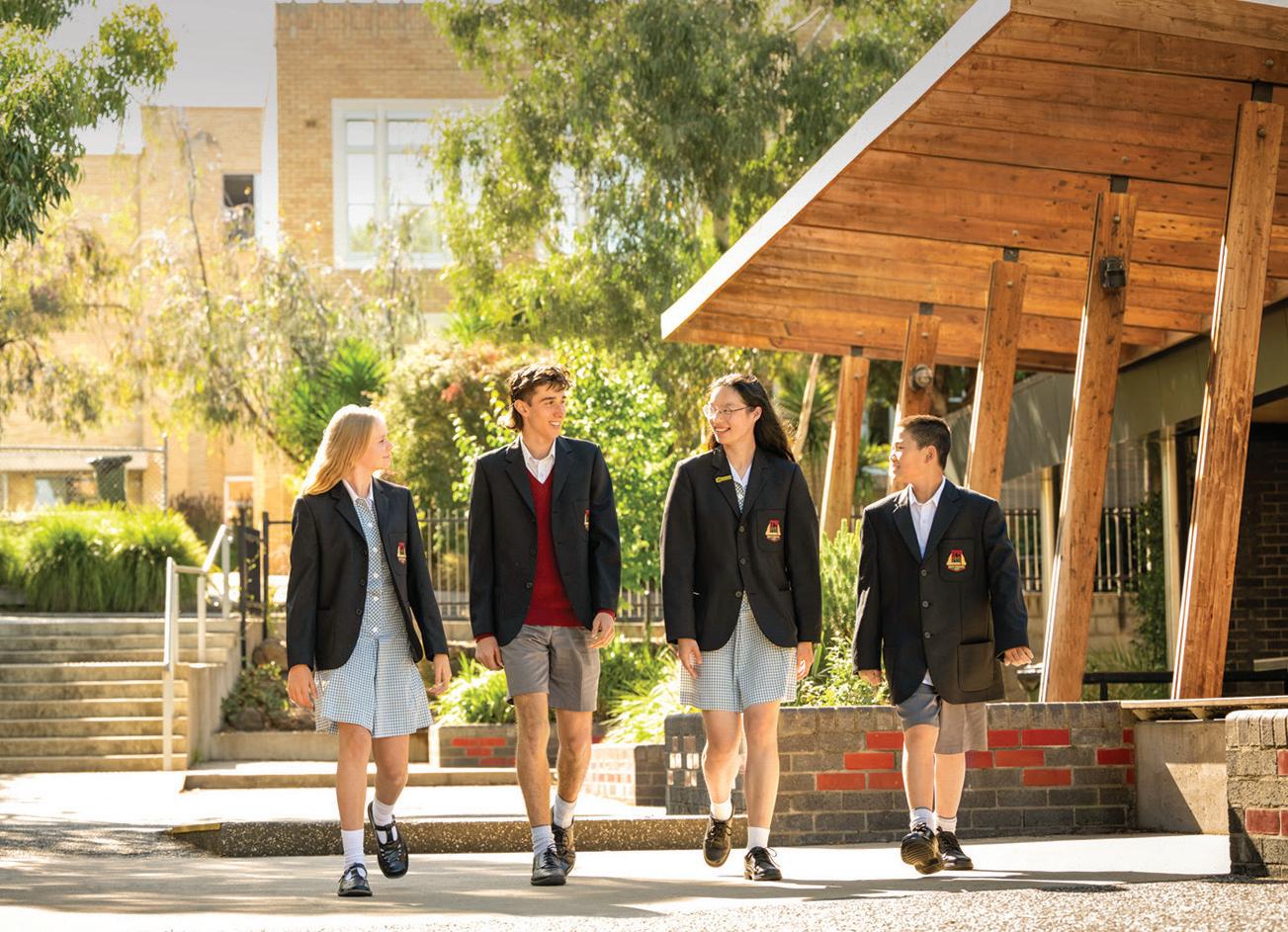
All students are encouraged to take an active part in their learning development. Our student population both local and international ensures we understand and support our young people who have different ways of learning, and our options provide opportunities for them to manage their own learning and pursue their own passions. Great features of our specialist provisions include:
• An extensive music program involving a third of the student cohort.

• Select entry offerings at Years 7, 8 and 9 to be part of the Learning Enrichment and Extension Program (LEEP), which differentiates the core program and builds on students’ ability to problem solve and investigate ethical issues.

• Year 9 and 10 Launch Program which has students working with tertiary and industry partners and accelerating their learning in STEAM subjects.
Our facilities are continually being upgraded so that collaborative and self-managed learners have the environments that will allow them to thrive.
Ph: 9836 0555
www.camhigh.vic.edu.au
Prospect Hill Rd, Canterbury 3126
Secondary Education 21
12615571-AI44-23
Carrum Downs Secondary College
CARRUM Downs Secondary College is a vibrant learning community of approximately 900 students across Years 7-12. We empower our students to build a successful future based on respect, personal growth and social inclusiveness.

We strive to create and maintain an inclusive, positive and safe learning environment, with the opportunity for every student to achieve success. We deliver a challenging, inspiring and comprehensive curriculum and an extensive cocurricular program, which allows our students to pursue their passions as they prepare for success in their future pathway.
At Carrum Downs Secondary College we are passionate that every student grows. We understand that our students have diverse ways of learning and a variety of strengths and interests. We aim to enhance the intellectual, physical, social and emotional development of all students and to develop all students’ abilities.
Our College runs in a House System where students are allocated to a specific House and remain in for their schooling at the College. We believe that this supports student development and further connectedness to the College as well as building stronger relationships with staff and students across all year levels.
Students and staff are supported and
encouraged through our School Wide Positive Behaviour Support program, to demonstrate our College Values of Respect, Integrity and Effort and are acknowledged for their positive behaviour both within our school and community.
Student voice, agency and leadership is a very important part of our college, evidenced by the large number of sought after student leadership positions and our highly regarded leadership development program that we use to support our student leaders. Additionally, we provide extracurricular programs including music, sports, debating, visual and performing arts, camps, excursions, academic competitions and community service.
We are currently constructing a new STEAM (Science, Technology, Engineering, Arts and Maths) Centre which will support our students to pursue their pathways choices in one of the highest growing industries in the country.
At Carrum Downs Secondary College we embrace a culture of excellence for all our staff and students. We are proud of the achievements we have made the past 20 years and welcome you to come and take a tour of the college and talk with our leadership team.
College tours available, please phone to make an appointment.
Secondary Education 22
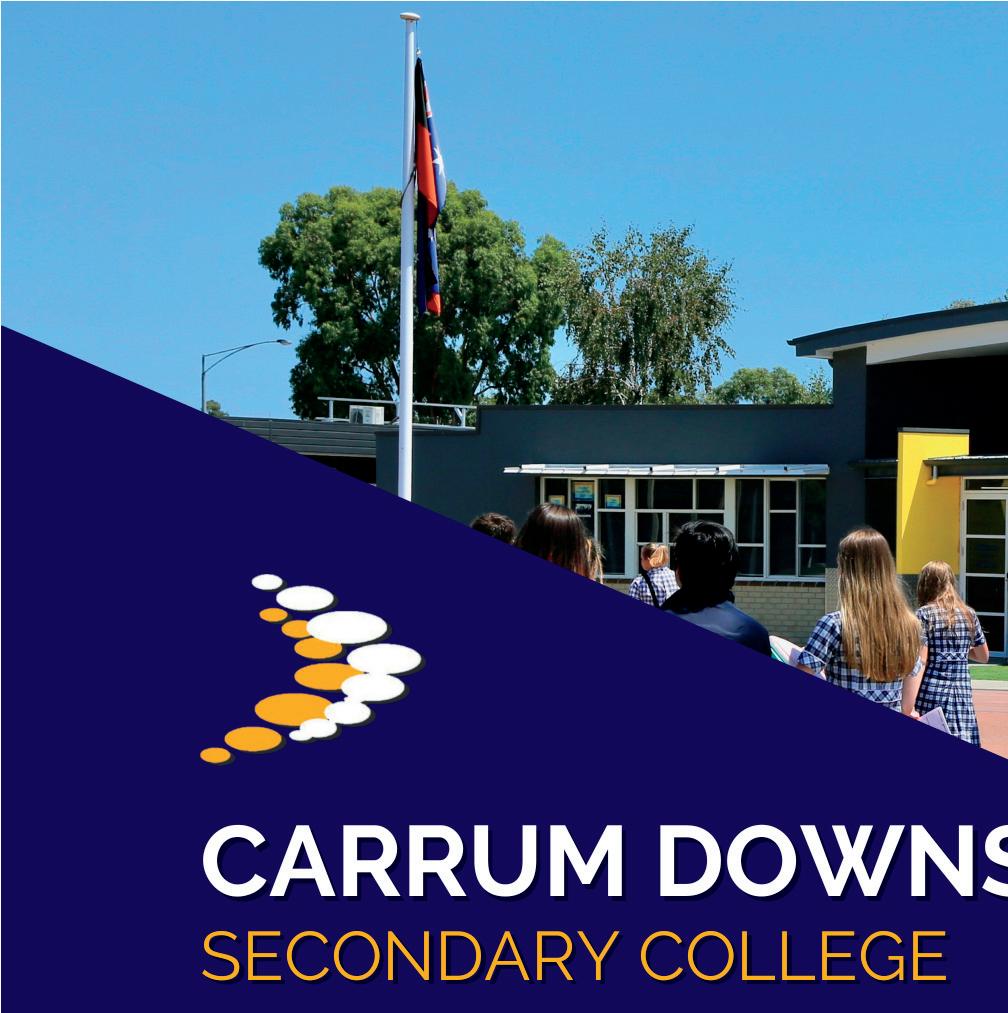





12615567-MS44-23
Our vision is that young people feel connected to our school and take pride in being a student here. They develop into inquisitive, literate and numerate life-long learners with a strong sense of community.
We deliver a rich curriculum that motivates students to be engaged in their academic learning. Student data is used to inform and support both academic and wellbeing needs. We provide a nurturing learning environment that inspires high academic expectations and prioritises health and wellbeing to ensure each student feels safe, valued and respected as an equal member of our school community.
Grade 6 to Year 7 Transition
We put significant efforts into Year 7 transition because we know how important it is. The transition programs we conduct as students move from Grade 6 to Year 7 provide us with a general overview of each student’s learning abilities, strengths, interests and challenges. We utilise this data to offer additional supports in Literacy and Numeracy, and to ensure that each student is extended to their fullest ability. Students are supported with multiple visits, additional small group afternoons, primary school visits by school leaders and the support of our professional well-being team.
Student Leadership Program
Student leaders across the College are formally trained to lead their peers and the community. Students from all year levels are provided with leadership opportunities.
Deaf Facility
At Charles La Trobe P-12 College we provide access to education for all students. Our Deaf Facility, established in 1984, provides highly individualised programs for students with a bilateral, sensory-neural moderate to profound hearing loss.

La Trobe University
Students at our College excel by embracing opportunities provided through our official partnership with La Trobe University. Students have access to university facilities and participate in university programs.
Quantum Victoria
Quantum Victoria is a specialist Science and Maths centre that is an integral part of Charles La Trobe College delivering programs in the areas of Science, Technology, Engineering and Maths (STEM).

Clubs & Extra-curricula

We know that the events that young people remember when they look back on their time at school are often those moments that were life-changing, or brought them into contact with a new life-time friend. These moments frequently fall outside of normal class. We are proud of our Extra-curricular program.
Soccer Academy
In 2023 we established our Boys & Girls Soccer Academy. Intended for Year 7 & 8 students, the academy is designed to support positive behaviour, academic effort, strong school engagement, improved attendance and powerful adult-student relationships.
Secondary Education 24
12633105-JB44-23
Our college is a diverse and vibrant organisation, where we ensure each part of the organisation thrives as a unique setting, while building powerful connections to each other.

Regardless of the setting, we are committed to providing enrichment education experiences for all our students.

We pride ourselves on being a community that welcomes all students and families.
We support students to develop strong interpersonal and social capabilities as well as to strive to attain academic achievement. The education programs on offer across the College enable each student to achieve to their full potential as teachers personalise learning to meet the individual needs, interests and abilities of all students. Our goal is for all students to become self-directed learners who are able to take responsibility for their learning, both at and beyond school.



Secondary Education 25
12613085-JB44-23
Keeping our planet clean & healthy
IN today’s rapidly changing world, the need for environmental stewardship and sustainability has become more urgent than ever. Schools play a crucial role in shaping the minds and values of future generations, making them an ideal platform for instilling eco-consciousness and promoting responsible environmental practices. The following explores how schools can actively contribute to keeping our planet healthy and clean through various initiatives and educational approaches.
■ Environmental Education: Schools can incorporate environmental education into their curriculum to raise awareness and understanding of environmental issues. By teaching students about ecosystems, climate change, waste management, and conservation, schools empower students with the knowledge and skills to make informed decisions and take positive action. Environmental education can be integrated across subjects, fostering a sense of environmental responsibility in students.
■ Sustainable Infrastructure: Schools can lead by example by implementing sustainable infrastructure and practices within their own premises. This can include energy-efficient lighting, solar panels, rainwater harvesting systems, waste management programs, and recycling initiatives. By showcasing sustainable practices, schools inspire students to adopt similar habits in their own lives and create a culture of environmental responsibility.
■ Green Spaces and Gardens: Creating green spaces and gardens within school premises not only enhances aesthetics but also provides hands-on learning opportunities. Schools can establish vegetable gardens, native plant nurseries, or butterfly gardens, where students actively participate in planting, nurturing, and caring for these spaces. This fosters a connection with nature, promotes biodiversity, and encourages responsible land management.
■ Reduce, Reuse, and Recycle: Implementing waste management strategies is essential for schools to contribute to a cleaner and healthier planet. Schools can introduce recycling programs, encourage waste reduction through composting, and educate students about the importance of reusing materials. Setting up designated recycling stations throughout the
campus and involving students in waste sorting activities promotes a sustainable mindset and reduces the school’s ecological footprint.
■ Community Engagement: Schools can actively engage with the local community to promote environmental awareness and conservation efforts. This can involve organising community clean-up drives, tree planting campaigns, or collaborating with local environmental organisations. By involving students, teachers, parents, and community members in such initiatives, schools foster a sense of collective responsibility and instil the importance of taking care of the planet.
■ Encouraging Sustainable Practices: Schools can encourage sustainable practices among students and staff through various means. This can include promoting walking, biking, or carpooling to school to reduce carbon emissions, advocating for plastic-free lunchboxes, and promoting the use of ecofriendly materials and products. By integrating sustainability into daily routines, schools nurture a sense of environmental mindfulness in individuals.
Schools have a vital role to play in nurturing an eco-conscious generation that values and takes responsibility for the health and cleanliness of our planet. Through environmental education, sustainable infrastructure, green spaces, waste management initiatives, community engagement, and the promotion of sustainable practices, schools can equip students with the knowledge, skills, and values necessary to be environmentally responsible citizens.
Secondary Education 26
By instilling a sense of environmental stewardship from an early age, schools contribute to creating a brighter, cleaner, and healthier future for generations to come.
EMPOWERING EVERY STUDENT TO ASPIRE AND ACHIEVE
Parents and students choose Copperfield College because of our success. We support students to create and realise their individual learning pathways though our expert and caring teaching and support staff. We invest in people to meet students’ needs.
With excellent VCE results, we are noticed as having one of the highest rates of students successfully completing Year 12 in our community.


I am proud that all of our students are supported to optimise their learning growth and leave the College as young articulate adults, confident about their place in the world.
I encourage you to consider a rounded education at Copperfield College as your first option.

I invite you to book a tour of our campuses and meet our wonderful students and staff.
Pip Griffiths College Principal
Secondary Education 27
12549972-FC05-23
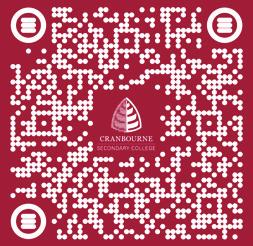
Secondary Education 28 12619034-ET44-23
WE'RE HERE FOR YOUR FUTURE








Secondary Education 29
12619047-ET44-23
Cranbourne East Secondary College
AT Cranbourne East Secondary College, we focus on giving every student, every opportunity to exceed their potential by providing a high quality pathway to success.
At the College we strive to make each student’s transition from Primary School to Secondary School a positive experience. We achieve this through a supportive Orientation Program provided for Year 7 students at the beginning of their first year at the College. Our Home Group and Learning for Success Programs deliver ongoing support for students throughout each school year.

Prior to commencing at the College, primary school students participate in supportive transition and taster days. They are structured to familiarise primary aged students with the usual routine of secondary students at the College. Inclusion is also highly valued at Cranbourne East Secondary College. We provide our staff with faces to names and strategies to best support our students’ various needs, not just in the classroom but socially and emotionally, as well. We encourage our staff to build positive relationships with students, to help increase connectedness to school and to assist with meeting the expectations of students. We discuss learning goals with all our students, to provide an opportunity for student voice and to foster ownership for their own learning. Staff generously give up their time to provide a range of clubs a for our young people to be part of, including Diversity, and Culture Clubs, Arts and Games Clubs.
This aim is to provide many students with the opportunity to feel included and supported within the College community.
School tours are available every 2nd Friday at 9.15am, however bookings are essential and should be made by contacting the school office on 5990 0200 or through the College website. School tours provide an excellent opportunity to ask questions about the day to day operation of the College.
During the tour we elaborate on how we encourage students to become more aware of their own strengths and interests. This selfknowledge leads to more informed student subject selection and prompts greater motivation for students to succeed in their chosen pathways. Cranbourne East Secondary School staff are dedicated to helping all our students strive for excellence.
For more information, see our website (cesc. vic.edu.au) or follow us on Facebook(facebook. com/CranbourneEastSC).
Secondary Education 30
Our Learning for Success program delivers ongoing support for students throughout each school year.
CRANBOURNE EAST SECONDARY COLLEGE
CESC OFFERS:
• Personalised VCE/VET/VCEVM pathways
• Continual impressive growth in VCE results and a 100% completion rate in VCEVM
• Broad Middle School program including our select entry high achiever Sports and STEM Pathways
• Extensive student leadership opportunities
• Comprehensive transition program to support a positive start to high school
• A well resourced and high performing Well-being Team that contributes to improve student outcomes
• Individual Literacy and Numeracy support targeting both intervention and enhancement
SCHOOL TOURS / OPEN DAYS
Tours of Cranbourne East Secondary College run every second Friday from 9.15am - 10.15am. Please visit the college website to make a tour booking


CONTACT DETAILS:
Cranbourne East Secondary College

50 Stately Drive, Cranbourne East VIC 3977
PH: 5990 0200
cranbourne.east.sc@education.vig.gov.au www.cesc.vic.edu.au
Secondary Education 31
12627378-HC44-23













32 12604125-MS44-23










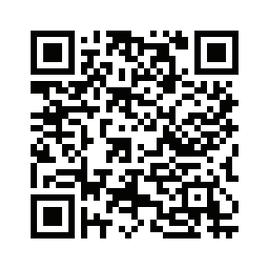
12592772-MS44-23
Catholic Regional College St Albans
CHOOSING a school for your child is an exciting but challenging time, especially for families who are preparing their first child for secondary school. There are many options and it can be difficult to know where to begin. However, parents know their child, and the process of looking at different schools will help clarify which is the best fit for their child and family.
Families often ask us what makes our school different. The first things that come to mind is that we are a strong faith community where learning, wellbeing and family all matter. We celebrate and embrace the rich cultural diversity of our local community and endeavour to live as a community without borders.
We offer a broad learning program that engages both girls and boys and challenges them to be the best that they can be. Our students are encouraged to explore their faith, to care for others, to become active global citizens and to do their personal best in all things.
Secondly, I think that our school is just the right size for young people as they navigate adolescence to become young adults. With 125 students at each year level, we are small enough to ensure that students are known, have a strong sense of belonging and feel safe. At the same time, we are big enough to offer a broad and engaging learning program. I would describe the College as a small school with big opportunities.

Lastly, our dedicated staff, strong relationships
with families, primary to secondary transition program and our links with parishes and the local community are all strengths of our school.
Co-curricular activities are an important part of the secondary education experience and prospective students and their families are often keen to know more about these. Activities range from the community garden, various clubs and sporting activities, to the school production, choir, homework club and cultural nights. The co-curricular program changes over time, depending on the interests of students and staff. Further details and a virtual tour are on the College website.
I hope this brief insight into our school will help you in making a decision about secondary education and I welcome your interest in the College. If you have further questions, we are happy to chat by phone or set up a meeting.
Christina Utri, Principal www.crcstalbans.catholic.edu.au
Secondary Education 34
We offer a broad learning program that engages both girls and boys and challenges them to be the best that they can be.




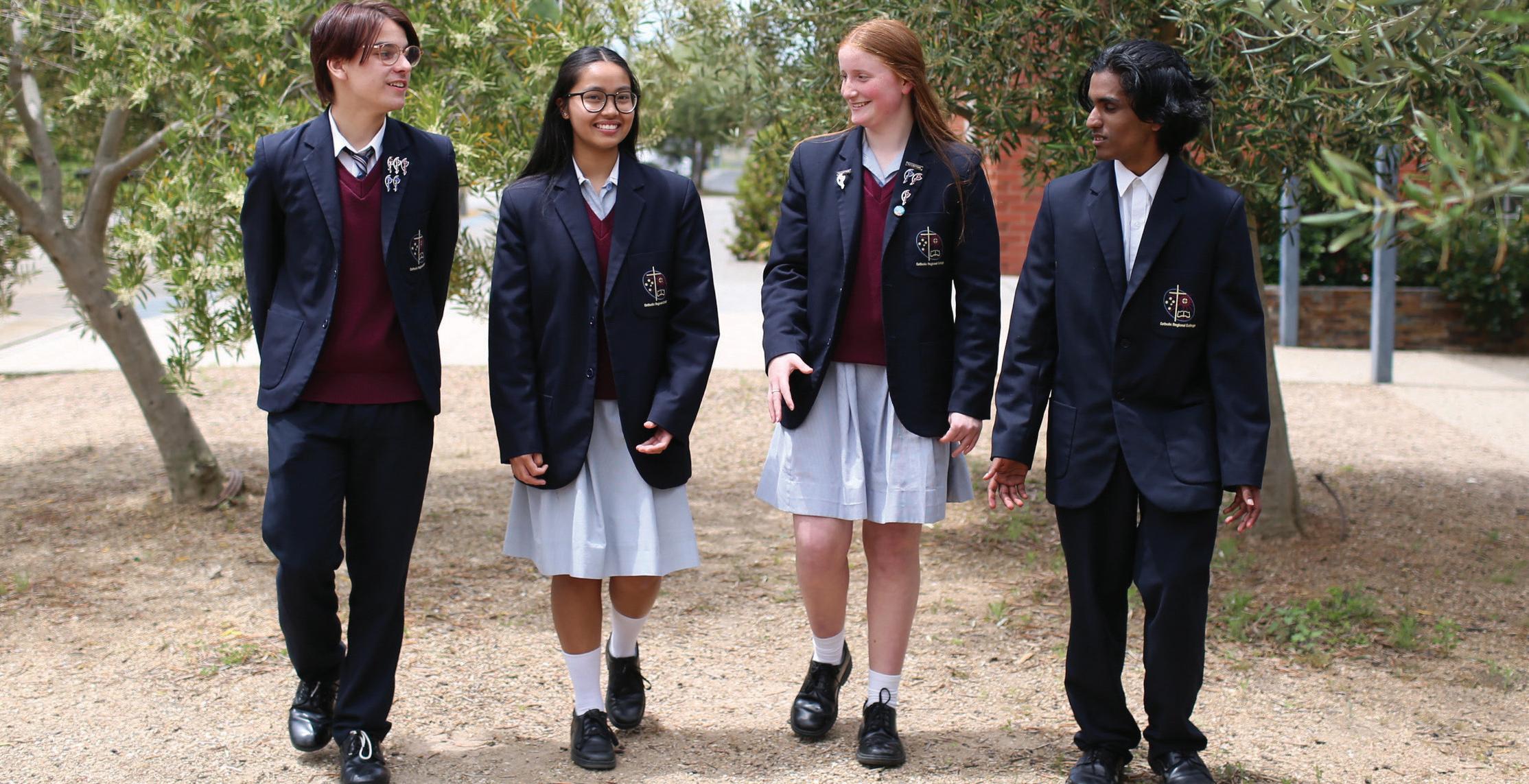

Secondary Education 35 12622708-AP44-23

















Secondary Education 12619080-JB44-23
















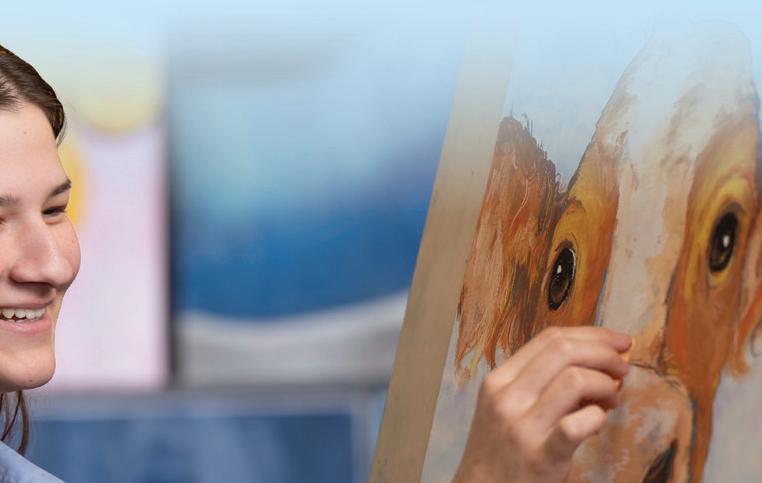















Secondary Education 12619113-JB44-23

12634241-AP44-23



12614642-AP44-23
Essendon Keilor College
ESSENDON Keilor College is a multi-campus college that has served the needs of the community for over 100 years and continues to provide excellent educational opportunities for all students.
Our vision is to develop accomplished citizens who contribute, live meaningfully and succeed.
Our junior campuses deliver a program designed to meet the needs of students in Years 7 to 9. The senior campus provides a diverse curriculum at Years 10 to 12 to prepare all students to progress for further study and training.
Our graduates frequently return to tell us about their lives since leaving school. They all remark on how much they value the education they received at Essendon Keilor College.
The college recently completed an $11 million rebuilding program to provide outstanding facilities and STEM learning centres for 21st century teaching and learning.
Our college operates in a culturally diverse community and offers a breadth of educational services that support the aspirations of our students and their wide range of needs.
At Essendon Keilor College, students are not just one of a crowd. We know that every student is different, with different aspirations, needs and dreams. This makes the college a unique and exciting place to learn. Our dedicated junior schools focus on early learning and building solid educational skills, friendships and a sense of belonging. The personalised approach to teaching and learning continues at our senior campus in Essendon, and because there are many pathways to a successful career that run alongside the ATAR system, we make sure that each of our senior students can find their own path to tertiary education, vocational training and employment.
Our individual and personal approach to teaching and learning is the hallmark of our school, and why you can be sure that you are attending a college where your education will really matter. Our college is well known for the excellence of our academic programs, with the specialist senior campus offering VCE, VET and VCE/VM, and with our graduates progressing to a wide range of pathways.
Our 2022 Dux, James Ngo, is planning to study
Biomedical Science at Monash University as our students excelled across a range of disciplines and are furthering their education at universities across Australia.

The College has a number of specialist programs. Our STEM program is ground breaking and we are a foundation school member of the University of Melbourne Science Gallery. There is an elite football program, run in partnership with Essendon Football Club which helps prepare students for careers in the Sport and Recreation industry. Our College is known for its Performing Arts program and we also specialise in teaching languages other than English. These specialist offreings sit beside a wide range of broader academic programs.
With a strong international focus, our college has sister schools in Japan and Vietnam and students travel to visit these countries as well as Italy to hone their language skills. The college hosts an excellent International Students Program. For over 25 years, international students have joined the college to pursue their dreams and have gone on to study at universities in Australia and overseas
All students have access to the latest technology through computer laboratories and the 1:1 computer program.
Regardless of your cultural background or circumstance, we encourage all prospective parents and students to join our vibrant college and welcoming community.
Secondary Education 40


Secondary Education 41 Bringing the Technology of the Future into our classrooms ESSENDON KEILOR COLLEGE Leading the way in STEM Education (Science, Technology, Engineering, Mathematics) Niddrie Campus Years 7-9 Peters Street, Airport West Phone: 9375 8400 East Keilor Campus Years 7-9 Quinn Grove, East Keilor Phone: 8331 0109 Essendon Campus Years 10-12 286 Buckley Street, Essendon Phone: 9319 1300 For further information or to book a tour 12459748-JW45-20 www.ekc.vic.edu.au
Sustaining physical education up to VCE
Physical education is often considered a fundamental aspect of early education, focusing on fostering physical fitness, motor skills, and healthy lifestyle habits in young learners. However, the benefits of maintaining physical education extend well beyond the initial years of schooling. As students’ progress to the upper years of education, it becomes even more crucial to sustain physical education programs. In this article, we delve into the myriad advantages of continuing physical education during the upper years of school, emphasising its role in promoting physical, mental, social, and academic well-being.
■ Physical Health and Fitness: Physical activity remains essential for overall health, regardless of age. Engaging in regular physical education during the upper years of school helps students maintain or enhance their physical fitness levels. Adolescence is a critical time for growth and development, and physical education programs provide opportunities for cardiovascular fitness, muscular strength, and flexibility improvement. By continuing to prioritise physical activity, students can mitigate the risk of obesity, cardiovascular diseases, and other health issues later in life.
■ Lifelong Habits: Fostering healthy habits at a young age paves the way for lifelong wellbeing. By maintaining physical education in upper years, students develop a strong foundation for a physically active lifestyle. They are more likely to carry forward these habits into adulthood, reducing the likelihood of sedentary behaviors that contribute to health complications. Furthermore, the inclusion of physical education encourages students to find enjoyment in various forms of exercise, making fitness a part of their daily routines.
■ Mental Health and Stress Management: Physical activity has a profound impact on mental health. Engaging in regular exercise during the upper years of school can help reduce stress, anxiety, and depression. Adolescents often face academic pressures, social challenges, and hormonal changes, making physical education a crucial outlet for stress relief. Exercise stimulates the release of
endorphins, promoting a positive mood and enhancing cognitive function, which can ultimately improve academic performance.
■ Improved Academic Performance: Contrary to the misconception that physical education detracts from academic pursuits, research suggests a positive correlation between physical activity and academic performance. Regular exercise enhances cognitive functions such as memory, attention, and problemsolving skills. By participating in physical education, students can experience improved focus and concentration, leading to more effective learning in other subjects.
■ Social Interaction and Teamwork: Physical education provides a unique environment for social interaction and teamwork. In upper years, students have the opportunity to refine their interpersonal skills, develop leadership qualities, and learn to work collaboratively with their peers. Team sports and group activities foster a sense of camaraderie and mutual support, enhancing students’ ability to communicate effectively and resolve conflicts in various contexts.
■ Body Image and Self-Esteem: Adolescence is a time when body image and self-esteem can be particularly vulnerable. Physical education programs that emphasize positive body image and self-acceptance contribute to a healthier self-concept. Engaging in physical activities that challenge and nurture their bodies can boost students’ self-confidence and help them develop a realistic view of their physical capabilities.
Secondary Education 42
Physical education programs that emphasize positive body image and self-acceptance contribute to a healthier self-concept.
■ Motor Skills and Coordination: Upper years of schooling provide opportunities for students to further refine their motor skills and coordination through various physical activities. These skills not only contribute to overall physical fitness but also impact daily tasks and recreational activities outside of school. Developing strong motor skills and coordination enhances students’ ability to engage in a range of physical activities with confidence.
■ Long-Term Benefits for Preventive Health: Engaging in physical education during the upper years of school can have a significant impact on preventive health measures later in life. Adolescents who cultivate healthy habits are more likely to continue engaging in regular exercise as adults. This, in turn, reduces the risk of chronic diseases such as diabetes, hypertension, and osteoporosis in the long run.
■ Time Management and Balance: Sustaining physical education programs in upper years teaches students valuable time management skills. Balancing academics, extracurricular activities, and physical exercise fosters a sense of discipline and organisation. These skills are transferable to the demands of
adulthood, where juggling various responsibilities is a constant challenge.
■ Setting a Positive Example: Educational institutions play a pivotal role in shaping students’ attitudes and behaviors. By continuing to prioritise physical education in upper years, schools set a positive example for students. They send a message that physical well-being is integral to a holistic education, encouraging students to value their health and make informed choices about their lifestyles.
■ Sustaining physical education in the upper years of school is a multifaceted investment that yields lifelong benefits. Beyond the immediate advantages of physical fitness and motor skill development, the continuation of physical education promotes mental health, stress management, academic performance, and social skills. The habits formed during these crucial years lay the foundation for a healthier, more active and fulfilling adulthood. By recognising the far-reaching impacts of physical education, educational institutions can empower students to lead balanced, active lives that contribute positively to their overall well-being.

Secondary Education 43
Gladstone Park Secondary College
GLADSTONE Park is founded on a culture of respect: respect for the school, our peers and ourselves. From this, all aspects of school life follow.
Our highly dedicated staff work hard to bring out the best in students in everything they do. We provide conditions in which students thrive - high expectations, clear boundaries and the opportunity for students to be involved in all aspects of school life. Our facilities and grounds are maintained at the highest standard.
Our Curriculum
At Gladstone Park, our major purpose is to support students in achieving academic success, by giving them the best possible chance of gaining entrance into a course at a University/ Tertiary Institution or employment in their chosen pathway.
The school provides a core curriculum program in Years 7-9. Year 10 is predominantly elective based from a broad selection of subjects.
In addition, we offer two specialist programs - a Select Entry Accelerated Learning Program (SEAL) and an Italian Immersion Program.
Select Entry Programs
SEAL - Select Entry Accelerated Learning
Gladstone Park is a proud member of The Association of Accredited SEAL Schools, and has run a highly successful SEAL program for sixteen years. Students in the SEAL program experience the full curriculum offered at the college, however, they move through their learning at a faster pace. Years 7, 8, 9 and 10 are completed in three, rather than four years. In this way, the needs of gifted and high potential students are met by eliminating
repetition and considerably increasing the pace and the depth of instruction. This gives these students the option of completing their VCE over three years.

Italian Immersion
Gladstone Park has had an Italian Immersion program for 11 years and is a flagship school for utilising the CLIL (Content and Language Integrated Learning) methodology. Immersion students learn language through content, and students in this program develop great concentration skills and mental agility.
Immersion students experience the full curriculum offered at our college while studying Mathematics and Humanities in Italian from Year 7 to Year 9. During the Italian language classes students learn new vocabulary and grammar that will facilitate their content learning.
Extra-Curricular Activities
Gladstone Park students participate and excel in the arts, performing arts and sport. Our annual school musical, Art Show and music performances are acknowledged for their high production standard and students’ performance skills. We offer a wide range of sporting opportunities and many of our sports teams make it to Regional and State finals.
Year 7 Placement
Gladstone Park is the school of choice for many families and places in Year 7 are highly sought after. We are keen for our local families to have access to our select entry programs and to offer programs that cater for our students’ learning needs. We have very limited places available in these programs and we are proud to prioritise our local high achieving students.
Secondary Education 44
Information Evening
Wednesday 17th April 2024
Gladstone Park Secondary College 14-36 Taylor Drive
GLADSTONE PARK VIC 3043
Open Day Tours
Wednesday 24th April 2024
• Culture of respect with firm, fair discipline
• Academic focus
• Vast extra-curricular program



• Excellent facilities

• Highly skilled and dedicated teachers
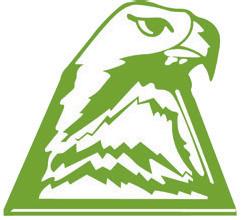

• Select Entry programs (SEAL & Italian Immersion)
• Broad selection of VCE and Vocational major subjects


Weekly school-in-action tours from March to May – see website for details
Phone: (03) 9933 0500
www.gladstoneparksc.vic.edu.au
Email: gladstone.park.sc@education.vic.gov.au

Secondary Education 45
12613101-KG44-23
GLENEAGLES SECONDARY COLLEGE
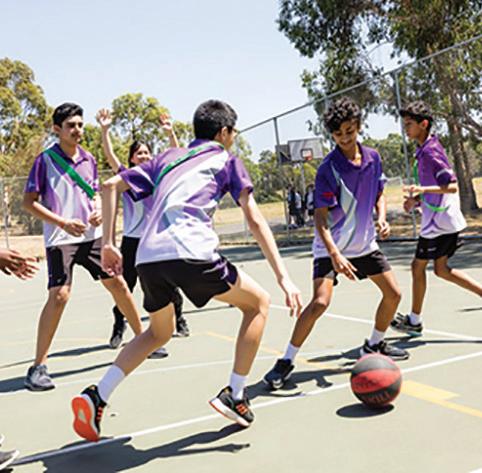




Our vision is ‘to empower learners to be confident, resilient and successful citizens.’

Our commitment is ‘to support students to achieve their very best’
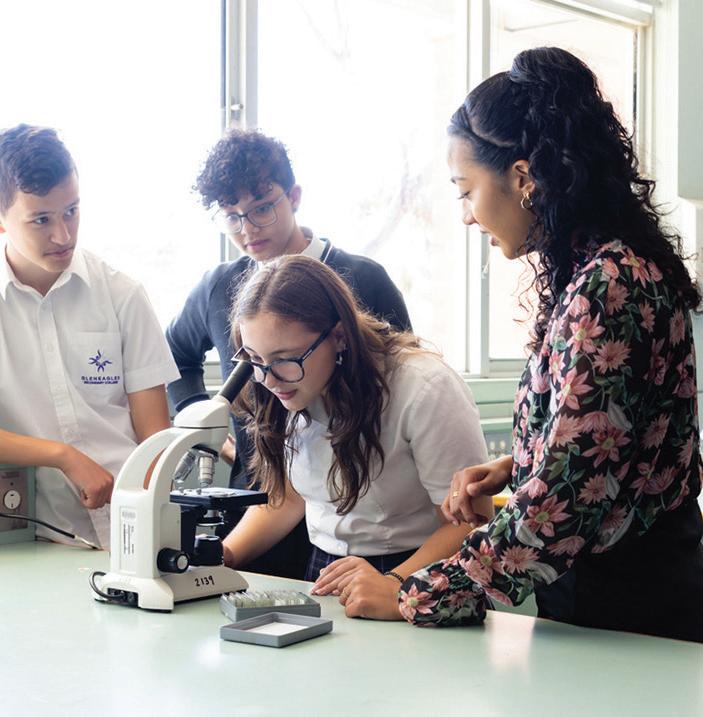

‘Bird’s Eye Student Podcast’ and their interview with Gleneagles College Principal, Mr Chad Ambrose.



www.gleneagles.vic.edu.au




gleneagles.sc@education.vic.gov.au

Secondary Education 46
12634240-AV44-23
Gleneagles Secondary College


has undergone major redevelopments in the last two years. A new Senior Centre, a new leadership team and an outstanding teaching and support staff has seen improved learning outcomes across the college. The focus of the college is to support learning growth, particularly around Literacy and Numeracy, so that students are able to pursue their chosen pathways and to achieve their personal best. Equally the college is pioneering an approach to building pride in the school through extensive collaboration and partnership with the parent / carer community, through student voice and through engagement with the wider community.
We offer a broad VCE program that includes accelerated VCE options from Year 10, University Enrichment courses and access to vocational courses. Students can also elect to participate in our: Select Entry Academic Learning (SEAL) Program, Sport Academies, Performing Art Programs and Extension Programs across all learning areas.

The SEAL Program is specifically designed for high ability students who have exhibited a passion for academic learning. In 2023 we have introduced Enhancement Programs for Basketball, Soccer and Volleyball, forming strong affiliations with Melbourne Phoenix
Basketball and Melbourne City Football Club. Whilst the college’s Performing Arts offerings include our renowned Instrumental Music Program, annual productions and a thriving array of cultural performances. From 2024 the college will commence development of a Visual Arts and Technology Precinct that will showcase student work in a professional gallery format.
We have strong partnerships with local primary schools and we support transition to secondary school with a dedicated Year 7 space, a mentoring program with senior students and access to scholarships across the college.

Gleneagles Secondary College is committed to developing happy, healthy and resilient children, with dedicated staff, that work to support students in and out of the classroom. Our commitment is to develop partnerships with families to support our students to achieve their very best.

Secondary Education 47 58 Reema Boulevard Endeavour Hills VIC 3802 03 9708 1319
Gleneagles Secondary College
12619105-AV44-23
Grossek’s view
AFTER three years of the pandemic, much has changed, but uncertainty has not. Everyone is tired and the impact of COVID-19 has been profound in many ways, both on an individual basis and collectively. In writing this piece from the perspective of preparing for the 2023 school year, I admit to being seriously challenged. Where do I start, on what do I focus, and how?
How does the 2023 school year look from the perspective of the past three years? I am sure it is a question many parents are asking of themselves both in observation of their children and the wide and varied commentary on the effects of the pandemic on student learning progress. I will do my best, mindful of the disparate outcomes of the past three years.
Undoubtedly, remote learning, lockdowns, and the continuing disruptive consequences of the pandemic have had a negative impact on both the learning and wellbeing of many children. In saying this, it is worth noting that the recently published ATAR results for Victorian VCE students this year are the best for several years. That this has happened reminds us that it can be prudent to withhold judgement when confronted with gloomy predictions, as we have been over the past three years, regarding student learning outcomes.
Reports are plentiful of the impact on the social and emotional wellbeing of students during the COVID-19 pandemic, with eminent child and adolescent psychologist, Dr Michael Carr-Gregg saying that he has not witnessed anything in the past 30 years like the increase in the number of youngsters presenting with suicidal thoughts and self-harm issues. Carr-Gregg suggests that effects such as these will be long term in nature.


It is hard not to be deeply concerned about observations and predictions such as these. In the context of the continuing shortage of teachers and specialist support staff such as psychologists and social workers available to schools the challenge is worrying. Some bright news does exist. The Victorian government is providing $200 million over four years and $93.7 million ongoing to expand the Mental Health in Primary Schools program to every government and low-fee non-
government primary school in Victoria.
Making matters worse insofar as school staffing is concerned, however, is the outright and increasingly brutal competition between schools and sectors for qualified staff. This is a direct consequence of the school staff shortage across all areas of school operations. In the short term, there is not much in the way of positive news on this front. One can only hope that continuing pressure brought to bear on our state and federal governments will see more equitable funding and resourcing policies for public schools being realised, sooner rather than later.
Now in the tail-end of the third year of the pandemic, school transition programs have been in full swing again. This is genuinely good news. The curtailment of transition programs from preschools to primary schools and from primary schools to secondary schools in the recent past had made the transition process for many students very problematic. Schools, for their part have had to be very creative in managing the influx of students from either pre-schools or primary schools, respectively. Children now transitioning into primary and secondary schools should be enjoying a more comprehensive and reassuring process, something of which I would believe would be very heartening for parents. Teachers also!
The pandemic has thrown up many valuable talking points - the issue of the value of extracurricular (ECA) activities for children being one. During 2020-21, these types of activities were largely discontinued. Nowadays, they are back in vogue.
Secondary Education 48 2023 in Focus
In the context of the continuing shortage of teachers and specialist support staff such as psychologists and social workers available to schools the challenge is worrying.
The research on the value of extra-curricular activities on student learning and wellbeing is fascinating.
Firstly, a large body of research conducted internationally prior to the pandemic has consistently shown positive relationships between ECA participation and cognitive, psychological, and social outcomes for children and adolescents. William Carbonaro, Associate Professor of Sociology, University of Notre Dame and Emily Maloney, a graduate sociology student at Duke University reviewed these findings in their joint paper, extracurricular Activities & Student Outcomes in Elementary& Middle School: causal effects or Self-selection. The study by Carbonaro and Maloney, concluded that because of methodological limitations, prior research failed to address the self-selection of advantaged families in ECAs, which raises concerns regarding whether ECA participation is causally related to student outcomes. Overall, their findings suggest that participation in ECAs during early primary school years has a small but positive causal effect on academic ability, which grow larger in later grades through to early secondary school. However, their findings provided little evidence that greater ECA participation improves students’ socioemotional skills in either early or later school years through to Year 8.
Here in Australia, research undertaken by University of Tasmania and Flinders University and cited in the journal, Developmental Psychology: Reducing Educational disparities Between Australian Adolescents in regional & Metropolitan Communities: The Compensatory Effects of Extracurricular Activities, presents a positive relationship between participation in ECAs and student learning and wellbeing. Broadly speaking then, children can only benefit from being involved in ECAs. Herein lies hope - if we are truly over the worst of the pandemic, then 2023 should see an increasing level of children engaged in ECAs.
In conclusion, it would be a very hard, if not impossible sell to suggest that 2023 will not be a very challenging year for all school students. There will be the lingering social and emotional fallout for some students from the remote learning and lockdowns. This, coupled with critical
shortages in school staff and ancillary support services, won’t lead to as swift a recovery as we would like.
On the other hand, the pandemic has, inadvertently provided us with an opportunity to pivot in our approach to teaching and learningmost particularly in technology. The importance of wellbeing, whilst not neglected previously, now commands a prominence in our funding and delivery of a quality education for all. Kindness springs to mind!
Always the optimist, I draw great comfort in the knowledge that humans, as a species, have displayed great resilience and adaptability over the ages and that it is easy to underestimate the capabilities of our young, especially from the perspective of the old.
Grossek, Berwick Lodge Primary School principal hosts Viewpoints on Casey Radio 97.7FM and presents the weekly podcast series: The Viewpoints Podcast
 Henry
Henry
Secondary Education 49
Haileybury
AT Haileybury, educational excellence and brilliant teaching go hand-in-hand with a strong focus on student health and wellbeing.
During its 130-year history, Haileybury has earned an enviable reputation for achieving some of the state’s best VCE results and ATAR scores.
The depth of teaching expertise across each Haileybury campus is a key part of the school’s success story. But the focus on education excellence is wrapped in a safe and supportive learning environment and a comprehensive wellbeing program.

Nurses, psychologists, a student welfare officer, Heads of School and Heads of Houses closely monitor and support the progress of each student. In more senior years, careers counsellors guide students as they make important study and career choices that best fit their goals and interests.
“We know that for students to thrive in their learning, their physical and emotional wellbeing must be nurtured and developed to ensure they flourish and become the best version of themselves,” says Diane Furusho, Deputy Principal Student Wellbeing.
Combine the focus on student wellbeing and
academic achievement with Haileybury’s drive to bring ‘brilliant teaching’ to life and it’s easy to see why so many young people thrive at the school.
“You can’t explain brilliant teaching in three dot points,” says Haileybury CEO|Principal, Derek Scott.
“I think brilliant teachers have a deep capacity for building relationships with students and for self-reflection. You can’t go into a classroom and teach the same thing for 20 or 30 years. Brilliant teachers should constantly reflect, refine and improve.”
Discover more about Haileybury by registering for a school tour at www.haileybury.com.au
Secondary Education 50
The depth of teaching expertise across each Haileybury campus is a key part of the school’s success story.
More than a swift sprinter.


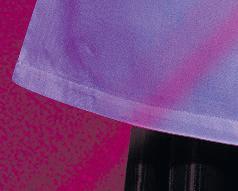



As a Haileybury Middle School qualities of a true leader who inspires her peers to engage in all areas of school life. Aside from studying Mathematics, Science, Latin and Chinese, she’s a tough competitor in Athletics. Julia’s on the fast track to success and we will be there to cheer her across









Secondary Education 51
haileybury.com.au
12606426-RR44-23
Hallam Secondary College
Success for All
AN exciting change is happening at Hallam Senior College. The College has begun the process of being reorganised and expanded to cater for the growing demand in Melbourne’s south-east and provide families with a quality local school for their entire secondary schooling journey. The school has been renamed Hallam Secondary College and will progressively move to a Year 7-12 school over the next three years.
Through our Values (Achievement, Care and Equity) we will ensure every student learns and achieves with the knowledge, skills and dispositions for lifelong learning while assisting them to be ready to take their place as positive contributors to their local and global community.
Everything we do is focused on identifying and maximising individual potential, through the use of the very best tried and tested teaching and learning practice within a supportive and caring environment.
Our mission is to provide a comprehensive and guaranteed high quality education program that ensures ‘Success for All’.
Our aim is to create a school which is:
■ a true learning community
■ a place students wish to attend, staff want to work and parents feel welcome
■ fulfilling student potential and,
■ preparing students for life beyond school
As a small to medium size secondary school we have the advantage of being able to know every learner as an individual.
Despite being a smaller secondary the new school will have an extensive range of Senior Pathways available to our students including VCE (both traditional Academic and the new Vocational Major), the highly regarded Sports Academy in Years 10 to 12 and access to the largest VET provision of any school in the Region.

A multiple pathway approach provides opportunities for all students. Whatever the next step, students finishing at Hallam Secondary College will have formed a clear sense of what they want to achieve and the pathway to this outcome. Students work closely with the staff, professional course advisors and experts from
industry to shape their choices.
Staff are committed to student success. The quality of our teaching and support staff is excellent, making a significant difference to student outcomes. Targeted enhancement programs across the Academy structure assists students to reach their potential.
Appreciating and embracing different backgrounds, cultures and identities is built into our school curriculum and celebrated through specific community events.
Secondary Education 52
Our College has a reputation for challenging students to be involved in a range of activities which help shape them as a learner and active community member. We expect our students to work hard, be involved in the wide range of extra curricula activities and be active members of the local community.

Secondary Education 53 12616072-JC44-23
Harkaway Hills College was founded with the support of the Parents for Education (PARED) Foundation, who have opened four schools across NSW over the past 40 years. What makes Harkaway Hills exceptional is our unique system of personalised education that assists parents as the primary educators of their children and supports each student to be the best person they can be. Our motto says a great deal about our ethos: Veritas et Virtus. “Truth and Virtue.”
We pride ourselves on our quality academic curriculum, personalised learning through a mentor system, religious education, and an emphasis on virtue education.
Parents and the school can begin to work on character development from the outset, with a mentor who works closely with each child. The college works with tried-and-true methods to ensure that crucial steps in early literacy to give each child the academic focus they deserve.
Shrouded by the natural beauty of lush, rolling green hills, the college punches well above its weight for a school that only opened include winning the interschool cross country
carnival, taking out a state-wide poetry competition and coming out on top of a local short story competition. The schools bumper
followingmore than a year of remote education.
The school is co-educational from Prep to Year 2 and single sex to Year in 202 .
acceptingenrolments from Year 3- .
2024 Information Sessions & School Tour

Term 1Friday 15 March
Term 2Monday 13 May
Friday 7 June
Term 3
Term 4
Monday August
Friday September
Monday 1 October
Information sessions are by appointment only and commence at 9:45 am.
Secondary Education 54
12606422-AA44-23

Secondary Education 55 Secondary Education 40 12606419-AA44-23
STEM is more than just Science and Maths
NEW research says that to prepare students for the real world, schools need to break down the barriers between individual subjects and enable students to solve complex problems using knowledge from a range of curriculum areas.
Lightning-speed learning on circuitry for a light festival; sleuthing water samples from the local river to measure the effect of pollution; controlling a chain reaction with a Rube Goldberg machine to grasp Newton’s Laws of Motion –these are just a few of the school projects discussed in a new Routledge book.
The author, Dr Jane Hunter of the University of Technology Sydney, says such projects enable students to bring together knowledge from multiple subjects, understand how school is relevant to life, and gain vital problem-solving and teamwork skills.
Her book combines over 4 years of research across 14 Australian primary schools and 59 teachers with a cohort of 1,500 students using “Integrated STEM” methods. Findings are based on large data sets from interviews, classroom observations, focus groups with students, surveys of the teachers, and the author’s knowledge of teaching and learning from her work as a teacher, policy advisor, and education researcher.
STEM stands for science, technology, engineering and maths, and it’s often used as a fancy word for science and maths education. But this is a big mistake, says Dr Hunter. She argues the whole point of STEM is to integrate these subjects: to bring them together to solve complex problems. Her research found that often teachers used the arts and humanities too, adding an A to make “STEAM”.
Four years ago, Dr Hunter was invited by school leaders to work with teachers in their schools to build professional confidence and capacity in STEM subjects, to set up integrated teaching and learning opportunities, provide elbow-to elbow support in classrooms, and then set about understanding what happened. The findings of the research provide the basis for the book.
Students and teachers from diverse schools loved Integrated STEM, says Dr Hunter. “They were enthusiastic about participating in authentic and meaningful learning instead of being more passive and experiencing each subject as separate from the other.”
“It was a real eye opener to trust the students and give them more ownership over complexity in their learning in multiple curriculum areas,” said one teacher.
“When the students learned how a machine works, they had to make up their own questions. It gave them more agency and took them to content in areas they wanted to explore. It was great. The students changed the way I teach. They led the way, and it really surprised them and me.”
According to another teacher, “The Year 5 girls in my class said … they have never done this before but now I really love teaching this way … we talked about famous female scientists, and the girls are experimenting more in maths, writing to scientists, and reflecting on their work.”
Integrated STEM is something all schools can do, says Dr Hunter. Teaching across subjects means wisely using the resources at hand. Many of the students came from economically disadvantaged families, spoke languages other than English at home, or had severe learning challenges.
“I really like using my hands to create and make things change,” said one young student in a special needs support unit. “We can ask lots and lots of questions and now we also find answers by ourselves. It’s good. I love this class.”
Dr Hunter mentioned a group of 8-year-olds at another school who worked out how to make a fully functioning hydraulic pump during a project on water and conservation. Applying engineering and physics principles, hands-on-skills, and perseverance, they built the pump out of milk cartons, rulers, tubes and syringes.
Yet Dr Hunter says it was frustrating to see certain students missing out on STEM learning opportunities due to a lack of material resources.
“At some of the schools, there wasn’t enough equipment to go around,” she said. “Teachers would, for example, have to decide who could use the scarce hardware resources. Students would dismantle what they were doing to provide parts for students in other classrooms. It’d really help if industry and philanthropists would invest more in school-level STEM education and do it long-term.
Secondary Education 56
“Many teachers said they needed much more professional learning in Integrated STEM to ensure they could grow and develop their practice of bringing content areas together.”

Dr Hunter believes her research in STEM has implications for how integration is approached in primary schools.
“I want politicians, education regulators and parents to know that teachers and schools are doing highly relevant learning that is preparing young people for the world, but they’re slowed down by loud voices outside of education that have limited understanding of the field.
“Principals, teachers and schools are caught in this tension, and are stifled from doing what they’ve been trained to do because they have to get through piles of paperwork that take them away from their real work: teaching and student learning.
“It’s not just about getting students excited about what they are learning,” says Dr Hunter. “It’s also about teaching them the skills they’ll need to survive in a complex, rapidly changing world.
“Firstly, workplaces beyond school expect teamwork where individuals contribute their expertise. Secondly, in a world of complexity issues like COVID-19, climate change, and ethical tech don’t always fit into a single subject.”
“To address the current pandemic, for instance, epidemiologists, mathematicians, education
experts, economists, social workers, communications creatives and a whole range of other disciplines have had to work together –while the arts have also been vital to making lockdown more bearable.
“We need an education shake up. The research in this book shows how powerful and meaningful learning can be. It’s time to get cracking. We’ve been talking about education transformations for a long time and these classrooms show what’s possible. Now we must trust principals, trust teachers – and give them more time and autonomy to get on with it.”
Dr Hunter says there are simple ways parents too can help their child’s learning in Integrated STEM. “The main thing is to spark your child’s curiosity. Lots of families are time poor. But there’s still so much you can do just by encouraging interest in the outside world –spending time in nature, asking questions and reading … but not always on a screen. If there’s any positives to come out of COVID, it’s that it’s given some families more time to talk, learn and discover together.”
Jane Hunter. (2021). High Possibility STEM Classrooms: Integrated STEM Learning in Research and Practice. New York: Routledge. For more information or an interview, please contact Associate Professor Jane Hunter at the University of Technology Sydney at jane. hunter@uts.edu.au
Secondary Education 57
For over 40 years, Heathdale Christian College has been a provider of authentic Christian education to families cohort of Year 12s at Heathdale Christian College graduated. In 2025, we look forward to seeing our inaugural cohort of Year 12s graduate at our vibrant Melton Campus.
At Heathdale, our desire is to see all students flourish in their unique, God-given potential. Highly experienced in delivering quality Secondary education, we immerse students in a range of subjects as they discover their passions and giftings in the lead-up to their senior Secondary years.

To support students in curating their learning journey and trajectory, all our Year 10s undertake Morrisby testing and receive careers counselling in the lead-up to VCE. This leads to tailored subject offerings to suit student interests and support their desired pathways.
We also offer additional learning opportunities that empower students to challenge themselves and enrich their school experience, including sports, creative arts, cultural activities, camps and excursions, as well as service and leadership programs.
Choosing Heathdale Christian College means choosing an education that equips your child with the tools they need to navigate the challenges of the modern world while deepening their understanding of the Christian faith. Our commitment to authentic Christian education and strong parent partnership sets us apart, ensuring that your child receives a holistic education that will empower them to make a positive impact in society.
Secondary Education 58
Belong | Believe | Become WERRIBEE & MELTON 12619079-AI44-23

CREATED WITH A PURPOSE Uncover Your Child’s God-given potential. Book a tour to start your enrolments journey for 2025 and beyond. www.heathdale.vic.edu.au/book-a-tour 12619075-AI44-23
Highvale Secondary College
AT Highvale Secondary College, students achieve academic and personal excellence. Students are empowered to take responsibility for their learning and encouraged to contribute positively to their community. We see every student as being unique, guiding them to reflect, set and to achieve their goals. Our students succeed in their applications to tertiary education after targeted support through the secondary school years.
Highvale students have been very successful in their VCE.
■ In 2022, 100% of Year 12 students completed the VCE with the highest ATAR of 99.5 10% of the students received individual subject study scores of 40+
■ Many of our Year 12 students receive first preference offers from Melbourne’s top universities. 94% of students accepted offers from the University of Melbourne, Monash University and Deakin University reflecting the high academic standards of teaching and learning at the College.
Our School Wide Positive Behaviour Support (SWPBS) framework aims to create and maintain a positive and safe learning environment, and student voice is encouraged through the SRC. Our values are:
■ Respect – consider the feelings of others and me.
■ Responsibility – support learning by managing time and resources effectively.
■ Resilience - persist when things are difficult.
■ Excellence in our achievements and ambitions.
■ Integrity in our actions and relationships.
Our Learning and Teaching programs are designed to cater for the learning needs of all students through differentiation to ensure that they are challenged. We have a vertical structured curriculum program that offers a broad range of subjects as students make choices based on interest and ability, not just on their year level.
The highly recognised Instrumental Music Program enables students to develop skills and expertise, providing a valuable co-curricular experience. Students can learn and play a variety of instruments, including strings, brass woodwind,
percussion, and voice.
Our music students have the opportunity of performing in several bands and ensembles within the school and throughout the wider community.
The Robotics and 3D Printing Program allows students across year levels to exercise their creative thinking, problem-solving, and teamwork skills. Students are taken through an engineering process to design and test their robots and our team has been successful in both Regional and Local Robotics Competitions.
Highvale’s grounds, buildings and facilities are modern and well-maintained including specialist spaces for all learning domains, a purpose-built Theatre, a well resourced Library, Careers Centre and Wellbeing Centre providing a welcoming and safe space.
Our Senior Study Centre provides a collaborative study space and is supervised to ensure students maximise this area. We also offer free VCE Tutoring and Homework Club.
Students can access numerous recreational spaces, including our gymnasium and hardcourt surface basketball courts, large oval, and outdoor table tennis tables. They are encouraged to explore a wide range of physical activities such as Swimming, Cross Country and Athletics Carnivals and Interschool sports. We also have established gardens and large shaded spaces that provide tranquil areas for students to relax and catch up with friends during recess and lunchtimes.
Secondary Education 60
We see every student as being unique, guiding them to reflect, set and to achieve their goals. Our students succeed in their applications to tertiary education after targeted support through the secondary school years.








Secondary Education 61 Please contact us T: 9803 5144 • E: highvale.sc@education.vic.gov.au F: 9803 4310 • W: www.highvalesc.vic.edu.au A: Capital Ave, Glen Waverley, 3150 12549937-RR14-23 College Tours Book Online Highvale Secondary College 54 9937-RR14-23
Hoppers Crossing Secondary College
HOPPERS Crossing Secondary College is a dynamic school, where students are presented with boundless opportunities throughout their schooling journey. We place great emphasis on developing innovative and challenging educational programs for students of all abilities and we are totally committed to continuing to improve the life and education of each student enrolled at Hoppers Crossing Secondary College. Our goal is to see each student become a happy, self-confident, and knowledgeable lifelong learner who can demonstrate independence and a sense of career direction. Ultimately we want to see each growing as a worthy, contributing member of our community.
The Graduating Class of 2022 achieved the best VCE results from all mainstream government schools in all of Wyndham. Furthermore, an analysis of Year 7 to 9 NAPALAN growth showed that the College had the second-best growth over the last 5 years from all government, catholic and independent schools in all Wyndham.
The students also indicated in their annual student survey, collected by the Department of Education, that they rated the College above the state average, all schools in Wyndham and like schools to the College in 29 of 33 indicators. Areas such as Simulated Learning, High Expectations, Classroom Behaviour and Experiencing Bullying were just some of the indicators that were above other schools.
With a school enrolment of ~1500 students, the College is one of the largest in Wyndham meaning that the breadth of subjects allows for a great deal of student choice. The College School Improvement Policy, where students are able to redo major assessment pieces after receiving feedback, has been a major factor in the wonderful academic performances of our students as they were able to build on their knowledge and confidence in all subject areas.
Outside the classroom, students are offered a range of opportunities including, but not limited to, performing arts where our students have been nationally praised for their skill and professionalism. Winning countess Awards at the Wakakirri Performing Arts event is testament to the dedication and talent of our staff and students.
Leadership qualities, evident in Hoppers Crossing Secondary College students, are
cultivated with successful contributions to many events from local youth forums and public speaking programs to interschool debating and State Youth Parliament events.
The vibrant sporting program offers the chance for students to compete in a wide range of sports, with individuals and teams representing the College and achieving success at regional and state levels.
As the school concludes a $10 Million building program, where an additional Gymnasium and Performing Arts complex is being built and all Science and Food Technology classrooms are being refurbished, he said that the students would have some of the best facilities in Wyndham in these areas.
To find out more about our College, I invite you to attend one of our Open Days or monthly tours.

Secondary Education 62
Keith Halge, College Principal
The vibrant sporting program offers the chance for students to compete in a wide range of sports, with indiviuals and teams representing the College and achieving success at regional and state levels.





Secondary Education 63 12613190-JB44-23
Hume Central Secondary College
HUME Central Secondary College, located in the City of Hume, serves the Broadmeadows area with a total student enrolment of approximately 1,200 students which has continued to grow in recent years.
At Hume Central Secondary College we are a positive and creative learning community that prepares students for a successful life. We pride ourselves on having a safe, calm and orderly environment and we are dedicated to educating the whole person. We work in partnership with parents to develop young men and women who are globally aware, open to growth and committed to making a positive contribution to their local community.
The College has three state of the art Campuses, two Year 7-9 Junior Campuses and a Year 10-12 Senior Campus. Our Blair Street Junior Campus also includes the Hume Central English Language Centre, a Year 7-10 facility providing for the language learning needs of newly arrived students to Australia.
High Ability Program (HAP)
Hume Central Secondary College’s High Ability Program operates at Years 7, 8 and 9 at both junior campuses.

The HAP program has been especially developed to cater for the needs of highachieving students by providing them with challenge and enrichment within a motivated and academically high-achieving peer group.
Senior Pathways
The emphasis in senior years is on working with students to help them to develop and practice the skills they will require for success in tertiary education and the workforce such as the ability to make decisions, accept responsibility and manage their time. In the senior years, students work with teachers to create a learning pathway that ensures they leave as young adults with the skills they need for a successful transition to life beyond secondary school. We believe that every learning pathway is valid and must be nurtured, and hence the college provides a diverse range of VCE subjects, the VCE Vocational Major and Victorian Pathway Certificate as well as a number of VET subjects.
We strongly believe that the key to a happy and successful education is the quality of the relationships that are formed between all members of the school community. We aim to ensure that every student feels safe and connected at all times. The dignity and respect for every person within our community underpins all that we do as a community, working collaboratively to assist each member of the community to achieve their hopes, dreams and aspirations.
We welcome your enquiries at any of our campuses and encourage you to visit our website for more information.
www.humecentralsc.vic.edu.au
Follow us on Facebook at www.facebook.com/ humecentralsecondarycollege/
Secondary Education 64





Secondary Education 65 RESPECTFUL RESPONSIBLE LEARNERS ACHIEVEMENT DIVERSITY SUCCESS www.humecentralsc.vic.edu.au @hume_central_sc 2024 COLLEGE OPEN DAYS BLAIR STREET CAMPUS JUNIOR YEARS (7-9) TUESDAY APRIL 23RD 2024 2PM-3PM BLAIR STREET CAMPUS JUNIOR YEARS (7-9) WEDNESDAY APRIL 24TH 2024 2PM-3PM TOWN PARK CAMPUS SENIOR YEARS (10-12) TUESDAY APRIL 30TH 2024 3PM-4PM
Benefits of LOTE
IN our increasingly globalised and interconnected world, the ability to communicate in multiple languages is becoming more valuable than ever. Teaching students a second language alongside their native tongue offers a multitude of benefits that extend beyond linguistic proficiency. Here we explore the advantages of learning another language and how it enriches students’ cognitive, cultural, and personal development.
■ Cognitive Development: Learning a second language enhances cognitive abilities and promotes brain development. Studies have shown that bilingual individuals exhibit improved problem-solving skills, enhanced memory, and heightened creativity. The process of acquiring another language stimulates the brain, strengthens neural connections, and boosts cognitive flexibility. Bilingual students often demonstrate better multitasking abilities and increased mental agility, skills that are advantageous in academic and professional settings.
■ Cultural Understanding and Empathy: Language is a gateway to understanding different cultures and perspectives. Learning another language exposes students to new ways of thinking, customs, and traditions. It fosters cultural empathy, as students gain insights into the beliefs, values, and worldviews of others. By engaging with different languages, students develop a greater appreciation for diversity, tolerance, and respect, contributing to a more inclusive and interconnected global community.
■ Improved Communication Skills: Learning another language enhances overall communication skills, even in one’s native tongue. The process of mastering grammar, vocabulary, and pronunciation in a foreign language deepens linguistic awareness and sharpens verbal and written expression. Bilingual individuals often have greater fluency, clarity, and accuracy in their communication, enabling them to express ideas with precision and eloquence.
■ Expanded Career Opportunities: In an increasingly global job market, proficiency in multiple languages is highly valued by employers. Learning another language opens doors to a wide range of career opportunities,
both domestically and internationally. Bilingual employees possess a competitive edge, as they can effectively communicate and connect with individuals from different cultural backgrounds. Multilingualism is particularly advantageous in sectors such as tourism, international relations, business, diplomacy, and translation.
■ Enhanced Problem-Solving and DecisionMaking: The cognitive benefits of learning another language extend to problem-solving and decision-making skills. Bilingual individuals often demonstrate a heightened ability to think critically, analyse situations from different perspectives, and find innovative solutions. The exposure to different linguistic structures and cultural nuances expands one’s mental flexibility, enabling students to approach challenges with adaptability and resourcefulness.
■ Personal Growth and Self-Confidence: Learning another language is a journey of personal growth and self-discovery. It challenges students to step out of their comfort zones, embrace new experiences, and overcome linguistic and cultural barriers. Acquiring a new language boosts self-confidence, resilience, and a sense of accomplishment. Bilingual individuals often have a broader worldview and a deeper appreciation for their own cultural identity, fostering a stronger sense of self and belonging.
The benefits of learning another language are far-reaching and extend beyond mere linguistic competence. From cognitive development and cultural understanding to improved communication skills and expanded career opportunities, learning a second language enriches students’ lives in numerous ways. It broadens horizons, nurtures empathy, and equips individuals with essential skills for success in our globalised world. By embracing multilingualism, we empower students to become globally competent citizens, capable of building bridges between cultures and fostering a more interconnected and harmonious society.
Secondary Education 66














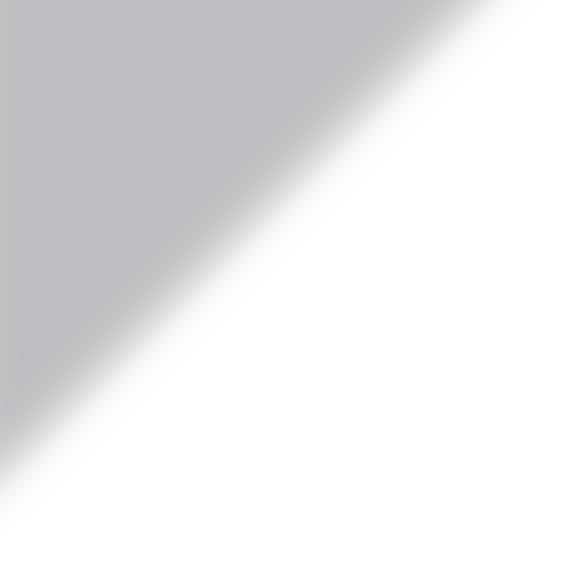




Secondary Education 67 12610412-RR44-23



Secondary Education 68 12631771-KG44-23

Secondary Education 69 12619043-KG44-23
Imagine the finest possible education for your child…





We are no ordinary learning environment. Our rapidly growing school has emerged as a highly innovative alternative to the mainstream focussed relentlessly upon the special needs of every individual and their ability to flourish in learning, wellbeing, and community. We are uncompromising in pursuit of this goal that permeates all our activities and programs.
A stimulating, intimate, and inclusive setting, committed to small student teacher-ratios, we are passionate about academic rigour, positive student outcomes and confident selfimage for every young person.

Our educators are highly experienced professionals, dedicated to excellence and continuous improvement for their students and for themselves. Every year 12 student (bar none) discovers a highly positive pathway, be it academic or vocational and we congratulate them all, for they are our future. These fine people will always be members of our proud community. Our students have the opportunity for early University entry during year 12, through our partnership with the Centre for Higher Education Studies.
Several of our year 12 students for 2023 commenced studies in Law and Technologies at some of Melbourne’s finest universities. Having applied during year 11, we support selected students to complete university studies during this their year 12 Year.


Secondary education is an adventure that should flow seamlessly from the primary years providing excitement, growth, and joy into adolescence and beyond. Therefore, positive student engagement, careful guidance, and genuine, authentic human relationships in learning is our priority.
Our young people come to us as children and we wave them off as young adults who continue to lead in their communities. We take this awesome privilege very seriously. Our families are our partners and we join with you closely throughout your child’s learning experience. We provide great care, reassurance and close communication every step of the way.
With continued infrastructure enhancement at the college and in our local area, and our proximity to the wonderful natural heritage of Darebin Creek, we are blessed with surely one of the most beautiful campuses in Melbourne. We offer very substantial and inclusive student scholarships in every area of achievement, and these are designed to maximise academic, social and emotional growth and opportunity for our young people.
It would give me great pleasure to meet with you and your children to share the wonderful educational environment that is Lalor North Secondary College.
 Timothy Cottrell PRINCIPAL
Timothy Cottrell PRINCIPAL
12632675-ET44-23















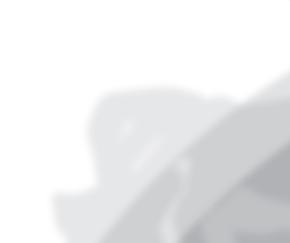



















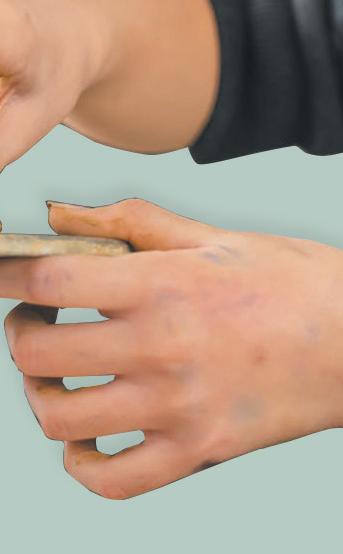







Discover Lalor North! A community for families seeking innovative learning experiences for their Child in 2024 Experience our… Inclusive Student Leadership approach Real-world career development program Broad VCE / VM offerings in senior years Safe, peaceful and friendly atmosphere Personalised learning growth across the curriculum Small class sizes Extensivescholarship Extensive scholarship gram ied ograms 12622037-ET44-23 114 Childs Road, Epping 9401 3888 lalornthsc.vic.edu.au/ lalor.north.sc@education.vic.gov.au
Lyndale Secondary College
LYNDALE Secondary College offers great advantages in the breadth of curriculum offerings. There is provision for specialist learning areas and facilities, extensive staff professional development, and a wide range of co-curricular programs which contribute to the fullest development of the student’s academic, cultural, artistic, social, and sporting achievements, while still maintaining a sense of belonging essential in all great schools. We aim to have each student move towards a successful and meaningful future, irrespective of where or what that might be.
Select Entry Accelerated Learning Program
Lyndale Secondary College is one of a small number of Department of Education schools in the state which is accredited to provide Select Entry programs for talented and gifted students and is a member of The Academy of Accredited SEAL Schools (TAASS). The SEAL Program initiative is part of the Lyndale Secondary College differentiated education priority which caters to the needs of the highly academically talented student. The program provides students with the opportunity to develop investigative, problem solving, analytical, and creative thinking skills which will challenge and engage students in a highly active style of learning.
School Productions and Performing Arts Program
Our recent school production of Mamma Mia was an absolute highlight of the year. It played five
shows in our stately Performing Arts auditorium. The standard of both the performances and the production elements was extremely high and we are thankful for all the families who supported this show, the staff who worked so hard to make it possible, and the students whose commitment, collaboration, and creativity shone through. An event like Mamma Mia encapsulates Lyndale Secondary College’s values and purpose to provide a safe, supportive, and challenging learning environment that focuses on nurturing the whole person to develop active and self-aware contributors to our global community.
Completion of building program
We have just completed a redevelopment of school buildings and grounds. Our new and engaging spaces connect and support our students to improve learning outcomes. The facilities completed include our new Senior studies building, Performing Arts centre, Visual Arts and Technology building, STEM building, Library building, Outdoor Sports courts, and Administration building. Our grounds also include a Junior school building and Sports stadium.

We are now enrolling students and welcome your interest in our college. I warmly invite you to contact the school on 9795 2366 to book a tour.
Pam Robinson, Principal of Lyndale Secondary College
Secondary Education 72



Secondary Education 73 12564207-JW14-23
Students and the educational revolution
THE integration of artificial intelligence (AI) into various facets of our lives has been nothing short of transformative, and the realm of education is no exception. From K-12 schools to higher education institutions, students are increasingly exposed to AI-powered tools and technologies that are reshaping the way they learn, engage with content, and interact with their educational environments. This article delves into the multifaceted use of AI by students at school, exploring its benefits, challenges, and the potential it holds for shaping the future of education.
Enhanced Personalised Learning
One of the key advantages of incorporating AI into education is its ability to facilitate personalised learning experiences. Traditional classrooms often struggle to cater to the diverse needs and learning paces of individual students. AI, however, can analyse each student’s learning patterns, strengths, and areas for improvement to tailor educational content accordingly. Adaptive learning platforms use data-driven insights to present students with appropriate challenges and resources, helping them progress at their own pace while ensuring a deeper understanding of the material.
Efficient Content Delivery
AI-driven platforms offer students access to a wealth of educational resources, making the learning process more efficient and engaging. Virtual tutors and intelligent chatbots are on the rise, providing instant help and explanations for complex concepts. These AI-driven tools enable students to seek clarification and assistance at any time, eliminating the need to wait for teachers or peer support. Consequently, students become more independent learners, honing their problem-solving skills and fostering a sense of empowerment in their academic journeys.
Automated Grading and Assessment
The time-consuming task of grading assignments and assessments has long been a challenge for educators. AI-powered grading systems, equipped with natural language processing capabilities, can provide automated and consistent evaluation of essays, quizzes, and assignments. This not only saves teachers time but also ensures objective
and unbiased grading, allowing educators to focus on providing meaningful feedback and support to students. Furthermore, AI can analyse assessment data to identify learning trends, helping educators refine their teaching strategies for better outcomes.
Data-Driven Insights
AI’s ability to analyse large volumes of data has led to a revolution in educational analytics. Schools can now gather and analyse data related to students’ performance, attendance, engagement, and more. These insights provide educators with a deeper understanding of individual and collective learning patterns, enabling timely interventions for struggling students and the identification of effective teaching methods. Additionally, these datadriven insights can help schools make informed decisions about curriculum development, resource allocation, and overall educational strategies.
Virtual Reality and Immersive Learning
AI’s integration with virtual reality (VR) and augmented reality (AR) has opened up new avenues for immersive learning experiences. Students can step into historically significant events, explore complex scientific concepts, or travel through the human body-all through interactive virtual environments. AI algorithms enhance these experiences by adjusting the level of difficulty, guiding students through challenges, and providing real-time feedback. Immersive learning not only makes education more engaging but also deepens understanding by offering experiential learning opportunities.
Secondary Education 74
These AI-driven tools enable students to seek clarification and assistance at any time, eliminating the need to wait for teachers or peer support.”
Ethical and Social Considerations
While the benefits of AI in education are undeniable, there are ethical and social considerations that must be addressed. The collection and analysis of student data raise concerns about privacy and data security. Schools must ensure that data is handled responsibly and transparently, with clear policies in place to protect student information. Moreover, the potential for AI to perpetuate biases present in training data raises questions about fairness and equity in education. Vigilance is required to prevent AI from inadvertently reinforcing existing educational inequalities.
Teacher-Student Dynamic
The introduction of AI in education does not diminish the role of teachers; rather, it redefines it. Teachers become facilitators of learning, guiding students in navigating the AI-enhanced educational landscape. With administrative tasks like grading automated, teachers can allocate more time to one-on-one interactions, mentorship, and addressing students’ individual needs. This reimagined teacher-student dynamic fosters a more collaborative and personalised educational experience.
Preparation for the Future
In an era characterised by rapid technological advancements, students need skills that will prepare them for an evolving job market. The use of AI in education equips students with digital literacy, critical thinking, and problemsolving skills-qualities essential for success in the 21st century. By engaging with AI-powered tools and technologies, students not only learn subject-specific content but also develop the ability to adapt to new technologies and innovate in diverse fields.
The use of AI by students at school marks a pivotal moment in the evolution of education. From personalised learning experiences to efficient content delivery, AI is revolutionising the way students engage with educational content and their learning environments. However, the responsible integration of AI requires a balance between technological advancement and ethical considerations. By embracing AI’s potential while addressing its challenges, educators can empower students to thrive in a rapidly changing world, fostering a generation of lifelong learners equipped with the skills needed to shape the future.



Secondary Education 76 12553113-JC09-22



Secondary Education 77 12552818-JC09-22
APPLY NOW 2026
Students at Mater Christi College are nurtured and supported to explore their interests and talents, learn about themselves and the world around them, and find a place to belong.


Our dream for every student who walks through our doors is that they have every opportunity to be their ‘own kind of girl’.


Secondary Education 78 EXCELLENCE
IN ALL-GIRLS EDUCATION
12628631-AP44-23




Secondary Education 79 6 1963-2023 28 Bayview Road, Belgrave, VIC materchristi.edu.au Telephone 9754 6611 REGISTER FOR A COLLEGE TOUR 12620982-AP44-23
Marymede Catholic College
MARYMEDE Catholic College is a young and vibrant school community. We aspire, in the way of Mary, to give students a passion for life, a love of learning and a determination to be of service to others.
Through our mission and values, we are committed to recognising and developing the unique potential of every student preparing them to adapt to change in the world we are living in. As a result, our curriculum nurtures the individual to achieve fullness of life through a balanced emphasis on academic, spiritual, social, emotional and physical wellbeing. Teachers and facilities provide students with every opportunity to develop their own interests and skills.
An education at Marymede incorporates the latest technology, delivered by educators who deeply care about student outcomes, within an environment that stimulates and encourages excellence.

In an exciting development for the Doreen and surrounding communities, Marymede Catholic College will open a new campus in Doreen commencing with Year 7 in 2024. Like our South Morang campus, the college will place a strong, dual emphasis on personal endeavour and pastoral care, guiding its graduates to enter adulthood with confidence, self-esteem, and the skills to successfully tackle life’s challenges.
Reimagining Education
Our students grow and develop in a learning environment that promotes diversity and choice. Teachers and facilities provide students with every opportunity to develop their own interests and skills. Our elective program from Year 8, allows students to select a learning program that supports their passions, whilst equipping them with the knowledge
and skills for senior school pathways.
We recognise the changing nature of education and an education at Marymede incorporates the latest technology, delivered by educators who deeply care about student outcomes, within an environment that stimulates and encourages excellence. We are responsive to the needs of our students and community, striving continuously to improve the educational experiences and opportunities presented. Students are challenged, enriched, and supported so that they can thrive as learners and develop into confident future leaders.
We have a diverse co-curricular program that enhances student learning and provide opportunities to discover new talents, foster passions and aspire towards excellence. Discovery and participation in a range of sports is encouraged through our extensive facilities and programs. Vast opportunities exist to compete in inter-school sport competitions against other schools and at state and national levels. At Marymede, we are committed to providing your child with a complete education where students are known, nurtured and thrive.
Secondary Education 80
We aspire, in the way of Mary, to give students a passion for life, a love of learning and a determination to be of service to others.
MARYMEDE CATHOLIC COLLEGE -PATHWAYS FOR ALL


Marymede Catholic College is a young and vibrant school community with an established co-educational K-12 campus located in the northern suburb of South Morang. We aspire, In the way of Mary, to give students a passion for

life, a love of learning and a determination to be of service to others. We welcome students from all faith and cultural backgrounds who are supportive of the ethos of the school.
DOREEN CAMPUS - OPENING FOR YEAR 7 IN 2024



The Doreen Campus will be a Catholic faith community, aspiring to develop young people to reach their full human potential – intellectually, physically, socially, emotionally and spiritually.

Set on an expansive seven-hectare site with state-of-the-art facilities, the campus will offer a comprehensive curriculum and high academic standards, coupled with an extensive co-curricular program.
Limited places at our Doreen Campus are available for Year 7 2024 and 2025.
To discover more, visit our website.

Secondary Education 81 marymede.vic.edu.au 60 Williamsons Road, South Morang VIC 3752 | 139 Eminence Boulevard, Doreen VIC 3754 T: +61 3 9407 9000 | F: +61 3 9407 9010
12620471-FC44-23







Secondary Education 82 12627247-JC44-23
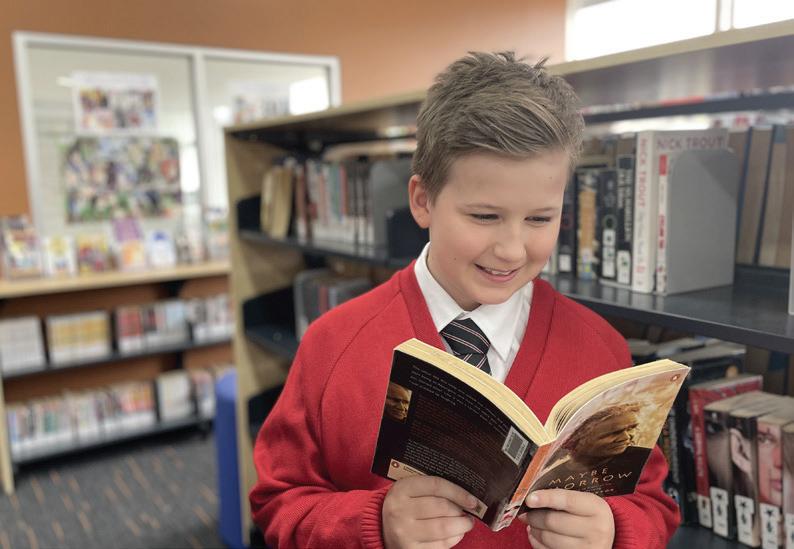





Secondary Education 83 12614655-JC44-23






Secondary Education 85 12397840-SN06-19
Norwood Secondary College
ESTABLISHED in 1958, Norwood Secondary College celebrates its 66th year of providing our community with an outstanding and broad range of educational experiences. Located in a beautiful setting overlooking the Mullum Mullum Creek Valley. Our bonds with the community are a significant feature in our feeder Primary Schools and the contributions of parents and friends are valued and encouraged across all aspects of our learning community.
Norwood Secondary College is committed to providing our students with an environment that is both inspiring and nurturing. The College has a proud tradition of ensuring our students are provided with an excellent educational experience and opportunities to grow intellectually, socially and ethically. It is our belief that our students will benefit from exposure to a broad range of learning experiences, in and out of the classroom, and our programs are developed with this as a core goal.
Our students leave the College equipped with the skills and self-belief to continue to learn as their lives progress. They also understand the importance of seeking to be the best they can be in all their endeavours.
Our Values: Respect
All members of our community are expected to respect the College, others and themselves
Aspiration
Students are encouraged to be the best they can be, in all endeavours
Responsibility
All members of our community are expected to take responsibility for their actions
Resilience
The College will support and assist our community members to develop both a strong sense of worth and the capacity to overcome negative experiences or disappointments
Staff interactions with students are guided by these principles and we seek to develop all our students’ understanding of these values, as expressed both at school and in their daily lives. To support personal development, a staff - student Mentoring Program operates from Years 7 to 12.
With the aim of developing successful learners, confident and creative individuals and active and informed citizens, a comprehensive 7 to 10 curriculum is offered covering all Learning Areas. The College also offers an Enrichment Program (EP) from Year 7 to 10 and a core and elective program within the Year 9 and 10 Curriculum. Year 9 students enjoy a range of off-campus activities including a City Experience. There are opportunities for Year 10 students to access a VCE subject. Year 11 and 12 students can undertake the VCE or the VCE Vocational Major (formerly VCAL). A variety of VET courses can also be accessed. The College runs a Homework Club after school, two days a week. Staff from various Learning Areas attend Homework Club and students are encouraged to attend to both seek extra assistance or to complete work in an environment that is conducive to effective study.
Co-curricular and enrichment programs are offered to engage students in areas such as leadership, peer support, debating, school productions and an extensive music program. A full range of sports is offered and students are encouraged to participate in inter-school competitions. The College has a very strong history in girls’ and boys’ interschool sport, with many state titles having been won over past years.
Student leadership is encouraged through a significant range of opportunities including College Captains and Prefects (each with specific portfolios), Year Level Leaders, Student Representative Council, House Leaders (leading a program of events that involves both sport and the performing arts), interschool sports and a Peer Support Program.
Student wellbeing is given a strong emphasis at Norwood, with formal structures including Heads of Year Level and Year Level Coordinators, Junior and Senior School Principals overseeing our two sub-schools, Careers and Pathways Counsellor, Student Wellbeing Counsellors and a Health Centre Coordinator. Every student is supported by a Mentor teacher who takes an interest in their wellbeing and assists them in setting learning goals. Student contributions and achievements are valued and acknowledged, as is parent involvement.
Andrew Sloane, Principal
Secondary Education 86
For over 60 years, Norwood Secondary College has been proud to serve the needs of the local community and beyond. During this time the College has developed an outstanding reputation as a provider of educational excellence and a broad range of programs. We are also known for the quality of the young people who graduate from our school. We are proud of all our students. Our goal is to foster the belief that programs, to show compassion for others and to value making a positive contribution in society.

We are committed to building on our rich tradition with innovative programs and the creation of a dynamic learning environment which fosters individuals’ abilities.

Secondary Education 87
12564228-AV05-23
Nossal High School
VICTORIA’S first fully academically selective coeducational Government High School, and one of only four academically selective high schools in the state, Nossal High School has been purpose designed to suit an adult, academically focused and highly aspirational cohort of students. The buildings are high tech. and ICT rich, mirroring features and approaches usually found in universities.
Nossal High School is committed to providing an innovative, inclusive and dynamic educational environment. We aim to challenge our students to be creative and critical thinkers with good communication skills and the resilience necessary to succeed in an ever-changing world. We aim to build their skills, self-confidence, leadership abilities and community spirit through a rigorous but rich and varied, curricular and co-curricular program. We want our graduates to be aspirational, ethical and responsible citizens who conduct themselves with humility and compassion.
For further information regarding Nossal High School we invite you to visit nossalhs.vic.edu.au or book a place in one of our Principal run tours or at our upcoming Information Night.
When you choose a Victorian Selective Entry High School, you are ensuring your child has the opportunity for an exceptional education at one of only four schools exclusively designed for academically talented students.
As proud government schools, each school has a unique approach and a shared purpose in nurturing excellence in young adults from Years 9-12. For further information about Nossal and the other Victorian Selective Entry High Schools visit www.vic.gov.au/selective-entry-high-schools Applications for 2025 enrolment open in early 2024. If you wish to be notified when applications open, register your email address at selectiveentry.acer.org/vic/apply.
Nossal High School Tours
Principal tours run from 9.30am on specific dates throughout the year. Bookings for these tours are available at https://www.trybooking. com/ <http://www.trybooking.com/> CFYUJ Visit our website at www.nossalhs.vic.edu.au/ enrolment-information/ for more information.

Secondary Education 88
We want our graduates to be aspirational, ethical and responsible citizens who conduct themselves with humility and compassion.
NOSSAL HIGH SCHOOL - BERWICK
A co-educational, academically selective government school for highly able students in Years 9-12
Unique Opportunities.
Exceptional Futures.
As one of only four Victorian Selective Entry High Schools, we offer a broad range of curricular and co-curricular experiences and programs, strongly influenced by the students themselves who have an active and authentic voice in the running of the school. We offer significant sporting, creative, performing, musical, community, cultural, social, and leadership opportunities to our students alongside a comprehensive academic study program.



Visitors are welcome to attend school tours with the Principal, and information evenings are available throughout the year. We invite you to visit us.
Learn more about our school or book a tour at http://nossalhs.vic.edu.au/

Secondary Education 89
12615549-FC44-23


12622123-MS44-23

Secondary Education 91 12622688-MS44-23


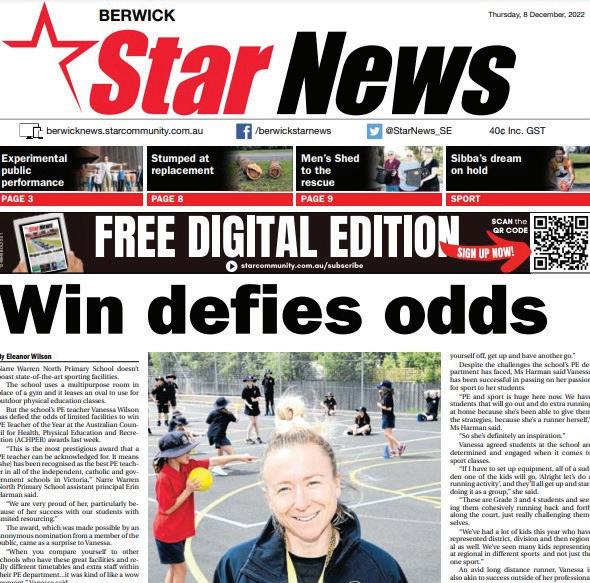




Nurturing maths skills
IN an era dominated by technological marvels, the role of mathematics in education has often been questioned. With computers and calculators readily available to perform complex calculations, some argue that traditional math skills are becoming obsolete. However, the importance of maintaining math skills and knowledge transcends the convenience of technology. Mathematics is not merely a tool for calculation; it is a cognitive exercise that nurtures critical thinking, problem-solving abilities, and a deep understanding of the world. The following delves into why students should continue to cultivate their math skills rather than solely relying on computers and calculators.
■ Critical Thinking and Problem-Solving: Mathematics challenges students to think critically and solve problems systematically. Engaging with mathematical concepts helps develop logical reasoning and analytical skills that extend far beyond the scope of calculations. When students actively solve equations, puzzles, and mathematical challenges, they are honing their ability to dissect complex problems, identify patterns, and formulate creative solutions. These skills are essential not only in mathematics but also in various aspects of life and professional pursuits.
■ Conceptual Understanding: Relying solely on computers and calculators for mathematical computations can lead to a shallow understanding of concepts. A thorough comprehension of mathematical principles enables students to apply their knowledge flexibly in different scenarios. It allows them to recognize the underlying connections between various concepts, facilitating a more comprehensive grasp of mathematics and its applications.
■ Real-World Applications: Mathematics is ubiquitous in our daily lives, and many realworld situations require more than simple calculations. For instance, interpreting data, making financial decisions, and solving engineering problems demand a deeper understanding of mathematical concepts. Relying solely on technology can lead to errors if students lack the ability to interpret results critically or verify the plausibility of outcomes.
■ Creativity and Innovation: Contrary to the misconception that math is rigid and formulaic, it is a discipline that nurtures creativity and innovation. When students grapple with complex mathematical problems, they often need to explore multiple avenues, think outside the box, and devise novel approaches. These creative processes contribute to the development of innovative thinking that can be applied across various fields.
■ Mathematical Fluency: Mathematics is a skill that requires practice to maintain fluency. Relying solely on technology can lead to a decline in mental calculation skills, making students dependent on external tools for tasks that were once intuitive. Maintaining mathematical proficiency allows students to solve problems quickly and efficiently, fostering confidence in their abilities.
■ Cognitive Development: Engaging with mathematics exercises the brain in unique ways. The mental effort required to process mathematical concepts strengthens cognitive functions, including memory, attention, and problem-solving. This cognitive workout has a positive impact on overall brain health and mental agility.
■ Preparation for Advanced Studies and Careers: Many fields, including science, engineering, economics, and computer science, require a solid foundation in mathematics. Students who maintain their math skills have a competitive edge in pursuing advanced studies and careers in these domains. Additionally, many standardised tests and university admission exams still assess mathematical knowledge, underscoring its importance for academic and career success.
Mathematics is not solely about calculating numbers. While computers and calculators offer convenience, they cannot replace the depth of understanding and skills that come from actively engaging with mathematical concepts. Students who maintain their math skills are better equipped to navigate real-world challenges, excel in various fields, and contribute meaningfully to society. As technology advances, the timeless value of mathematics as a mental exercise and a tool for intellectual growth remains undeniable
Secondary Education 93
Parade College
PARADE College has been at the forefront of educating young men for over 150 years.
With two campuses, one at Bundoora for the Year 7-12 VCE Pathway, and at Preston, for the Yr 10-12 VCE VM Pathway, Parade College offers a world of opportunities for students. There are over 70 VCE subjects available and 25 VET Certificates; Parade College is also a Registered Training Organisation.
Our House System provides a strong foundation for student wellbeing with each House headed by a House Leader who works with their team of Tutor Teachers to care for the students in their House. We have an extensive network of support programs to assist students including a large multidisciplinary Learning Diversity Team, Careers and Academic Advisors, Counsellors, and Youth Workers.
A Parade College education is consciously holistic and we ensure there are many opportunities for growth of the whole personacademic, physical, emotional, creative, and spiritual. Student voice is encouraged as is participation in a wide variety of Community Action and Social Justice programs.
Our academic programs include the Altior program for highly able Year 7-9 students with students placed in classes with like-minded peers. The ExCEL program for Year 9 students includes a variety of Extended Learning Projects, as well as learning4life, a series of Personal Development seminars. Furthermore, students who are high achievers in Year 9 are well-placed when applying to accelerate into available VCE Unit 1 and 2 subjects in Year 10 and VCE Units 3 and 4 in Year 11.

With world class facilities, our Specialist Sport Programs include the Year 7 Sport Development Program, the Specialist High Performance Sport Stream, and the Senior Sport Academy which provides direct entry into Bachelor courses in Business and Sport Science at La Trobe University.
Parade College is the first Manchester City Football School in Australia. From Year 7, students receive instruction from a Manchester City coach who is employed fulltime at Parade College. Manchester City Football School students are trained in the same manner as elite
Juniors worldwide who participate in Manchester City feeder programs and participation is incorporated into students’ daily timetables. Inclusion in the Manchester City Football School is optional with selection trials held.
We strongly value partnerships with external organisations so that our students have every opportunity to fulfil their potential. These include La Trobe University, Manchester City Football Club, Melbourne City Soccer, Diamond Valley Basketball, Melbourne United, and the Northern Knights.
Secondary Education 94
A Parade College education is consciously holistic and we ensure there are many opportunities for growth of the whole personacademic, physical, emotional, creative, and spiritual.





















Secondary Education 95 Book a Family Tour Today www.parade.vic.edu.au 12586851-MS44-23 A World of Opportunities


Secondary Education 96 Sapphire Street, Niddrie 3042 Ph: 9337 2488 www.rosehillsc.vic.edu.au/step A STEP TOWARD SUCCESS INFORMATION EVENING WEDNESDAY 17TH APRIL 6:30 – 7:30 PM APPLICATION CLOSE FRIDAY 2ND AUGUST STEP 2024 A SELECTIVE TALENT ENRICHMENT PROGRAM 12636491-RR44-23
At Rosehill Secondary College, the Science Department is equipped with state-of-the-art technology. This allows teachers to provide a unique experience in STEM education.



To further enhance our outstanding work in STEM, we have a 4.5 million Architecturally designed state of the art STEM centre which you are welcome to visit. Students have and will continue to participate in the following STEM experiences:
• Girls in Physics - Promoting female involvement in physics through conferences and workshops with other females in physics.
• VR room - computer generated learning environment where students can explore the structure of cells as well as historical sites without leaving school property.
• In2Science – Science and Maths peer mentoring in the classroom by current University Science Students.
• Robotics Program – High tech coding and programming digital technologies with the use of robotic models including: Sphero, Ozobots, Lego Mindstorm and Microbits.
• Use of multiple 3D printers- incorporating fusion 360 CAD software to design and develop real products.
• Gene Technology Access Centre (GTAC) – participating in various workshops such as the Biomechanics and design workshop which is part of the Victorian Challenge Enrichment Program
STEM students from Rosehill Secondary College will have the opportunity to embark on the ultimate STEM educational experience of their lives visiting the National Astronautics and Space Administration (NASA) Centre in Orlando, Florida, USA.
Secondary Education 97
12621015-RR44-23
Sacré Cœur
SACRÉ Cœur is an Independent Catholic School where young women are inspired and challenged to shape the world.
The transformation of heads, hearts and hands lies at the heart of a Sacré Cœur education. Our holistic approach to educating young women unites academic endeavour with a deep sense of care for each child and strength of community to create the truest expression of the Sacré Cœur way.
Laughter, inclusivity, deep friendships and the diversity of opportunity are evidenced in the girls’ education. Our young women are encouraged to raise their voices and to look outwardly, applying their wisdom and skill. Students at Sacré Cœur feel a palpable sense of belonging and connection to their lived experience and benefit from of a rich diversity of faiths within our community.
Our students benefit from our highly qualified and passionate teachers, many of whom are curriculum experts and VCE assessors. Our teachers embrace each child as an individual, meeting their learning and wellbeing needs from Prep to Year 12.
As a result our young women flourish and achieve exceptional VCE results.
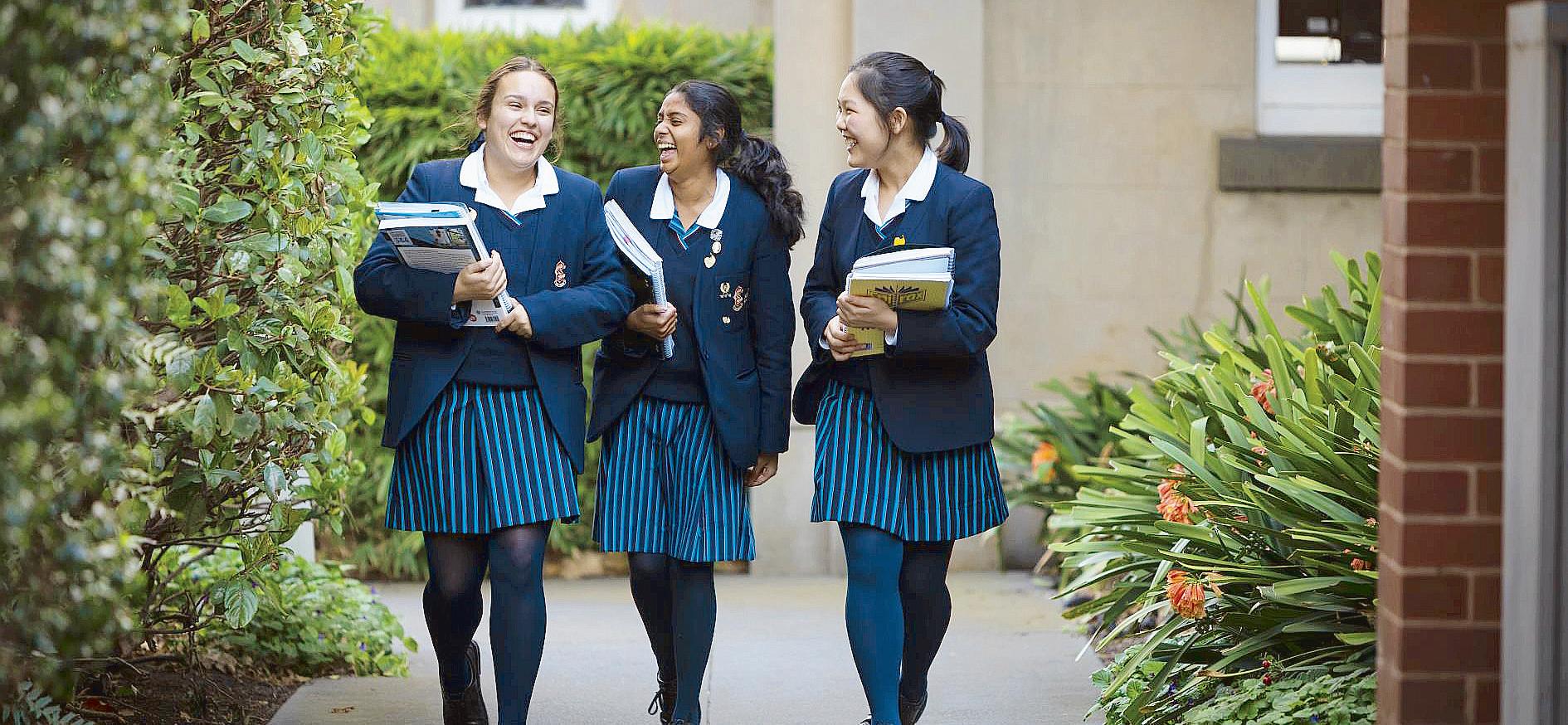
We are privileged to belong to an international Sacred Heart family of over 150 schools across 41 countries. Our international family deepens our sense of community as we learn together through exchanges, and engage social justice initiatives
Junior School
Children are naturally enthusiastic and curious. The learning experiences we deliver build upon their inquisitiveness in a stimulating and caring environment. Our new fee schedule makes it more accessible than ever before.
Senior School
As young women start to realise their full potential they find their strengths and passions. We nurture our young women on this journey of self discovery and academic endeavour so they feel empowered to find their place within the world.
Year 9 Program
Called Notre Monde, the program focuses on fostering growth in resilience, communication, teamwork, creativity, leadership and problem solving. Mindfulness, community service and physical challenge also form an integral part.
New Steam Building
Creativity is a cornerstone of a Sacré Coeur education. From the Creative and Performing Arts to design thinking in STEM, we nurture the skills of creative thinking so that our young women can see and solve the challenges of today and the future.
From 2021 we have enjoyed exciting new learning spaces to support the development of our students’ creativity. The new Science, Technology, Art, Mathematics and resource building, has given our students four levels of inspiring learning spaces.
Secondary Education 98




















Secondary Education 99 12604155-JC29-23
Salesian College Sunbury
AT Salesian College Sunbury, we pride ourselves on preparing students for the future. Motivated by our Salesian charism, we provide a quality education and promote our school values of Community, Learning, Excellence, and Faith, both in the classroom and in everyday life. Our culture is inspired by the example of Saint John Bosco (Don Bosco), the founder of the Salesians, and in 2023, we are proud to celebrate 100 years of Salesian presence in Australia.
In 2024, we are launching a brand-new curriculum structure - My Salesian Passport - that celebrates innovation in teaching and learning. The program is designed to empower our students to embrace their unique interests and abilities and build a learning pathway that optimises motivation and engagement from Year 7-12.

We are lucky to be based on beautiful and unique College Grounds that feature a working farm, an indoor sports stadium, a lake, a Heritage mansion, and premium facilities. Our latest building projects include a contemporary food technology building, and a state-of-the-art STEAM centre (due for completion later in 2023). Our commitment to cutting-edge infrastructure and facilities is reflective of our overarching goal to provide an environment that instils a love of learning in our young people and inspires them to strive in life. Our students are empowered to take an active part in their school journey through
student voice and leadership opportunities, and co-curricular clubs and activities.
Why not hear from the students themselves? Visit our website to book a space on one of our onsite, student-led tours where you will discover our unique campus and see what sets us apart!
Secondary Education 100
Our College motto, ‘Striving in Life’, reflects our belief that, given the opportunity and right environment, every student can strive for success. Our students are encouraged to have a voice in all aspects of their learning, and our broad range of subjects allows them to be challenged and to open their minds to the potential in their future.




Secondary Education 101 12620447-SM44-23
Scoresby

Secondary College Inspiring and Achieving Brilliance
Scoresby Secondary College provides a safe, supportive and challenging learning environment that focusses on nurturing the whole person in order to develop active and self-aware contributors to our global community. Located in the city of Knox our growing community has gained national and international recognition for quality teaching and learning and high student learning growth with the College being listed in the top schools in Victoria for the highest growth in literacy and numeracy for the past four years.
There following are key areas upon which we base our student’s success:
• Personalising student learning by teachers knowing every students needs, interests and aspirations from the time of enrolment
• A strong academic curriculum that provides opportunities for student engagement, differentiation and breadth to prepare students for future studies and employment
• Co-curricular programs that foster self-confidence and positive impacts on academic development
• Exceptional partnerships between students and their teachers, parents, tertiary providers, business and industry


• Extensive range of enhancement and enrichment opportunities including Top achievers Program from Year 7, business, and industry mentoring programs
• Outstanding performing arts, music and media programs
• There is an assessment system in place that provides a picture at any moment in time of each student’s literacy and numeracy progress against targets and expectations
• Each student knows, understands and practices the values and behaviours that are expected of all students in the school and more broadly in society
Secondary Education 102
For Information Regarding Enrolments and Tours Telephone 9765 4100 | Email scoresby.sc@education.vic.gov.au 12635384-HC44-23
Open Day Tuesday 26 March 2024
August 2023 recognised for outstanding student NAPLAN results











with 81% students in Year 9 exceeding or strong in reading (21% higher than the state average)



74% of students exceeding or strong in numeracy (14% higher than the state average)

67% of students exceeding or strong in punctuation and grammar (15% higher than the state average)

















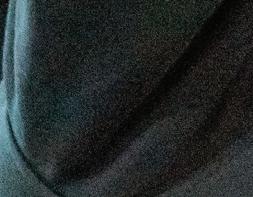
Secondary Education 103 Tour Bookings
www.trybooking.com/book EXPERIENCE SUCCESS
CRICOS Provider: 00861K 12615559-HC44-23



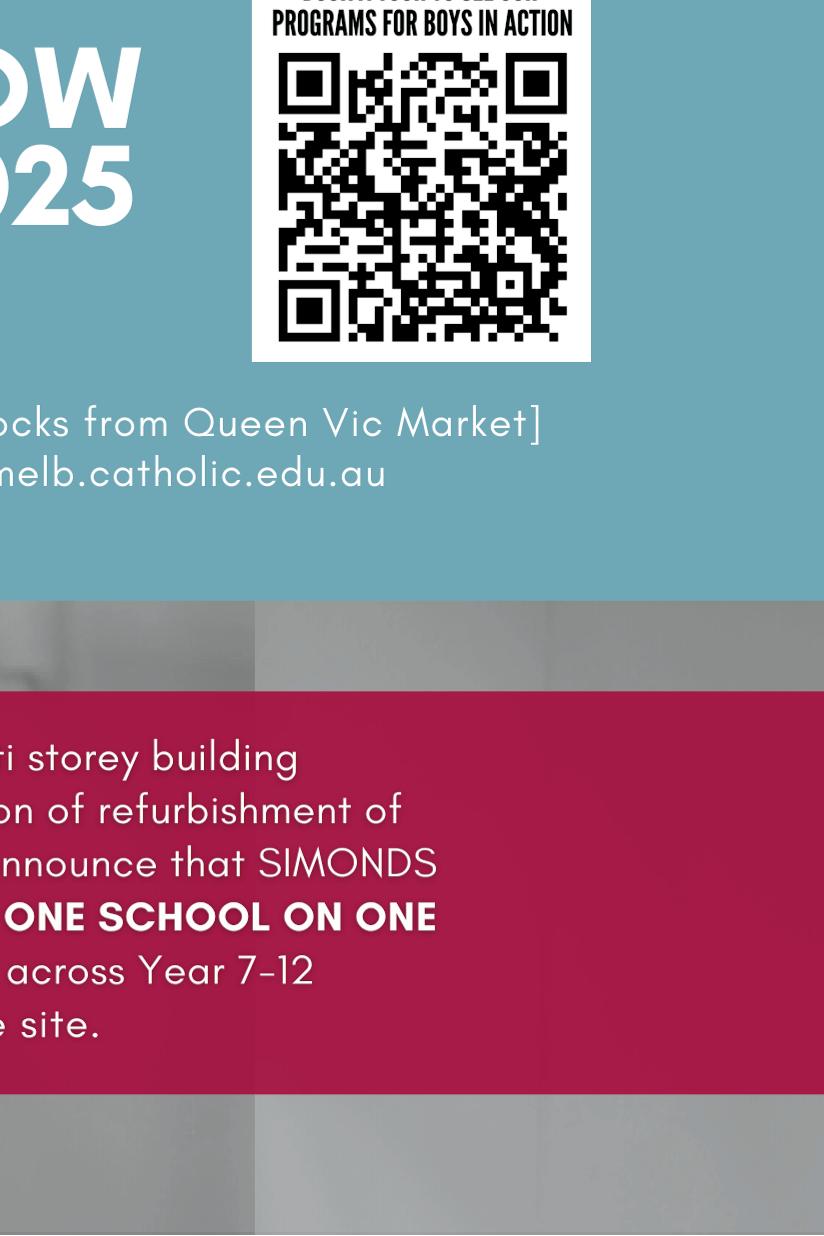

12619638-SM44-23










12619619-SM44-23
Victoria School Guides







Highly ranked on Google a useful resource tool for parents.




Whether








































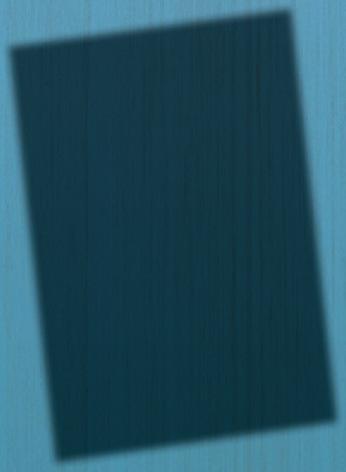




For further information regarding our range of education guides and to provide us with your questions

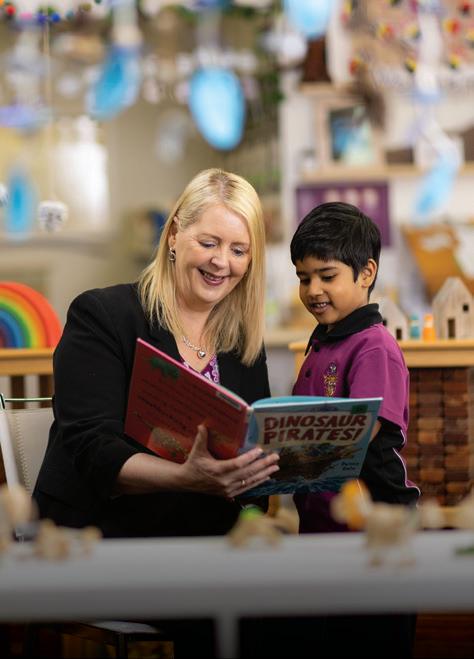

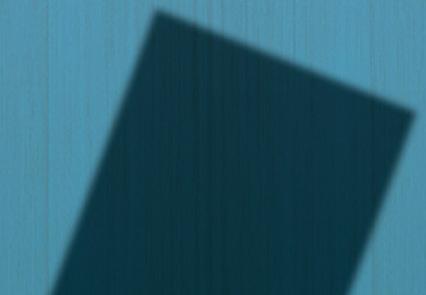




for
school for
child,
is for
frequently asked
have been
and
you have a
hasn’t
send
to our team
Check out the many interesting stories on students and their achievements, while many other educational issues have also been featured. Google Analytics 21 May 2022 - 22 May 2023 (12 months) • 15,079 users • 14,498 New Users • 16,965 Sessions • 28,345 Page Views • 9.6% people were returning visitors • 90.4% New Visitors
you are seeking information about a particular school in your area or are looking
a
your
then this site
you. Several
questions
answered
if
question that
been addressed then
it
for their input.
contact: Katrina Mihai on katrina.mihai@starnewsgroup.com.au or 03 5945 0693 choices ISSUE 8 • 2023 Government Kamaru Montag Rossbo Mecwa Melbo Winde Schoo Deaf Yarra ukague Sc ourne acareourne Y ermere ols wit Educat a Valle hools Guide Issue66•November2022•Est1999 ation ed education CatholicISSUE17•March2023
please
www.victoriaschoolguides.starcommunity.com.au
All of our hard copy guides are available digitally on the website
ucacat a Issue46•March2023•Est1999 pagesChristianSchools 58,40,41,44,45,Wesley59,64&65 Collegepages76&77 ForPhotoprovidedwiththecomplimentsofHaileybury furtherinformationrefertopages2,3,32&33. 12627152-FC44-23







































































































Secondary Education 107 12551796-JW05-23
Unraveling the gender disparity
IN recent decades, a noticeable trend has emerged within the education system: girls consistently outperform boys in numerous academic subjects. This phenomenon has raised questions about the underlying factors contributing to this gender disparity and their implications for the educational landscape. While it’s important to note that generalisations do not apply to every individual, various factors shed light on why girls are frequently achieving higher academic success than boys.
Learning Styles and Study Habits
One potential explanation for the gender gap in academic performance is related to differences in learning styles and study habits. Studies suggest that girls often excel in skills that are enhanced by meticulous planning, organisation, and attention to detail. They tend to be more disciplined in their study routines, diligently completing assignments and reviewing material in a systematic manner. On the other hand, boys may be more inclined towards active, hands-on learning and may struggle with tasks that require extended periods of focused reading or writing.
Classroom Behavior and Participation
Classroom behavior and participation patterns can significantly influence academic outcomes. Girls are often characterised by their attentiveness, willingness to ask questions, and participation in classroom discussions. These behaviors contribute to a positive learning environment and facilitate deeper understanding of subjects. Conversely, boys may sometimes exhibit more disruptive behaviors, which can hinder their ability to absorb information effectively. This divergence in classroom behavior can lead to divergent academic outcomes.
Social and Cultural Norms
Societal and cultural norms can also play a role in shaping academic performance. Traditional gender roles and expectations might discourage boys from engaging in activities that are perceived as “feminine,” including excelling in certain academic subjects. Similarly, girls may receive more encouragement and support for academic achievement, leading them to invest more time and effort into their studies. These societal pressures and expectations can impact students’ self-perception and motivation to excel in school.
Emotional Intelligence and Communication Skills
Emotional intelligence and communication skills are crucial for success in many academic disciplines. Girls often exhibit greater emotional intelligence, empathy, and interpersonal skills, which can enhance their ability to collaborate, communicate, and excel in subjects that emphasise teamwork and effective communication. These skills are increasingly valued in various fields, contributing to girls’ academic achievements and their ability to adapt to evolving workplace demands.
Focus on Soft Skills
The modern education system increasingly values a range of skills beyond academic prowess, often referred to as “soft skills.” Girls are more likely to excel in areas such as empathy, teamwork, and adaptability. These skills are nurtured through activities that encourage cooperative learning and emotional engagement, which are prevalent in many subjects. As the job market evolves, the prominence of these skills gives girls an advantage in their future careers.
Teacher Bias and Classroom Environment
Teacher bias and classroom environment can inadvertently influence academic outcomes. Research suggests that teachers might unknowingly hold different expectations for boys and girls, affecting their assessments and interactions with students. Girls may receive more constructive feedback and encouragement, while boys’ potential might be underestimated.
Secondary Education 108
With computers and calculators readily available to perform complex calculations, some argue that traditional math skills are becoming obsolete.
Additionally, classroom environments that cater to specific learning styles might favour girls’ approaches to learning, inadvertently disadvantaging boys.
The phenomenon of girls consistently outperforming boys in many academic subjects is a complex issue influenced by a multitude of factors. These factors encompass learning styles, study habits, classroom behavior, societal norms, emotional intelligence, and the evolving demands of the job market. It is crucial to recognize that gender disparities do not indicate an innate superiority of one gender over the other but rather highlight the diverse ways in which individuals approach learning and succeed in different contexts.
Addressing this gender disparity requires a multifaceted approach that considers both the needs of boys and girls. Educators should focus on promoting diverse learning styles and creating inclusive classroom environments that encourage active participation from all students.
Ultimately, recognising and celebrating the strengths and abilities of all students, regardless of gender, is paramount. By fostering an
educational environment that values diverse learning styles, skills, and perspectives, schools can help bridge the gender gap and provide every student with the opportunity to reach their full potential.

Secondary Education 109
It is crucial to recognize that gender disparities do not indicate an innate superiority of one gender over the other but rather highlight the diverse ways in which individuals approach learning and succeed in different contexts.
St Aloysius College
AFTER 135 years of providing exclusive education for girls, St Aloysius College has recognised the desires of families residing in Melbourne’s Inner North West to educate their sons and daughters together in a Catholic environment. For the first time this year, the College has opened its doors to a co-educational Year 7 cohort, receiving overwhelming support from parents, students, and staff. This united effort is creating an environment where students can thrive academically, personally, and socially.
As a Catholic school in the tradition of the Sisters of Mercy, St Aloysius College exemplifies the wide-ranging benefits that extend beyond academics in such an environment. Grounded in the Mercy Education values of compassion, justice, hospitality, service, respect, and courage, students are empowered to flourish in mind, body, and spirit. These values shape them into wellrounded individuals who are equipped to competently navigate the ever-evolving complexities of the modern world.
At the heart of the College’s educational vision lies a commitment to individual wellbeing. Acknowledging the uniqueness of each student, the College develops educational programs with their wellbeing in mind. By nurturing their overall wellbeing, the College lays the foundation for students to thrive academically and personally. The co-educational curriculum places great emphasis on collaboration, respect, and understanding between genders. In this inclusive
environment, students are empowered to become empathetic leaders, developing the skills necessary for respectful dialogue and positive change in their communities.
The comprehensive curriculum at St Aloysius College integrates academics with the Universal Learning Program (ULP) and a diverse range of co-curricular activities, providing students with opportunities to explore their interests and develop essential skills. By fostering critical thinking and intellectual curiosity, the college prepares students for future success and encourages them to excel in multiple domains. Engaging in an individualised approach to education that recognises the needs of the whole person, students broaden their horizons in a collaborative environment that equips them with crucial interpersonal skills, adaptability, and resilience, enabling them to thrive in diverse professional and social environments.
As the College embarks on this transformative co-educational journey, it prepares students for the real world beyond the school gates. Graduates of St Aloysius College emerge as compassionate, confident, and well-rounded individuals, ready to face the challenges that lie ahead. Enrolments for Year 7 in 2026 are now open, with applications closing on August 16th, 2024. Families are invited to join a campus tour and become part of a community that values curiosity and coeducation, preparing students for a brilliant future.

Secondary Education 110
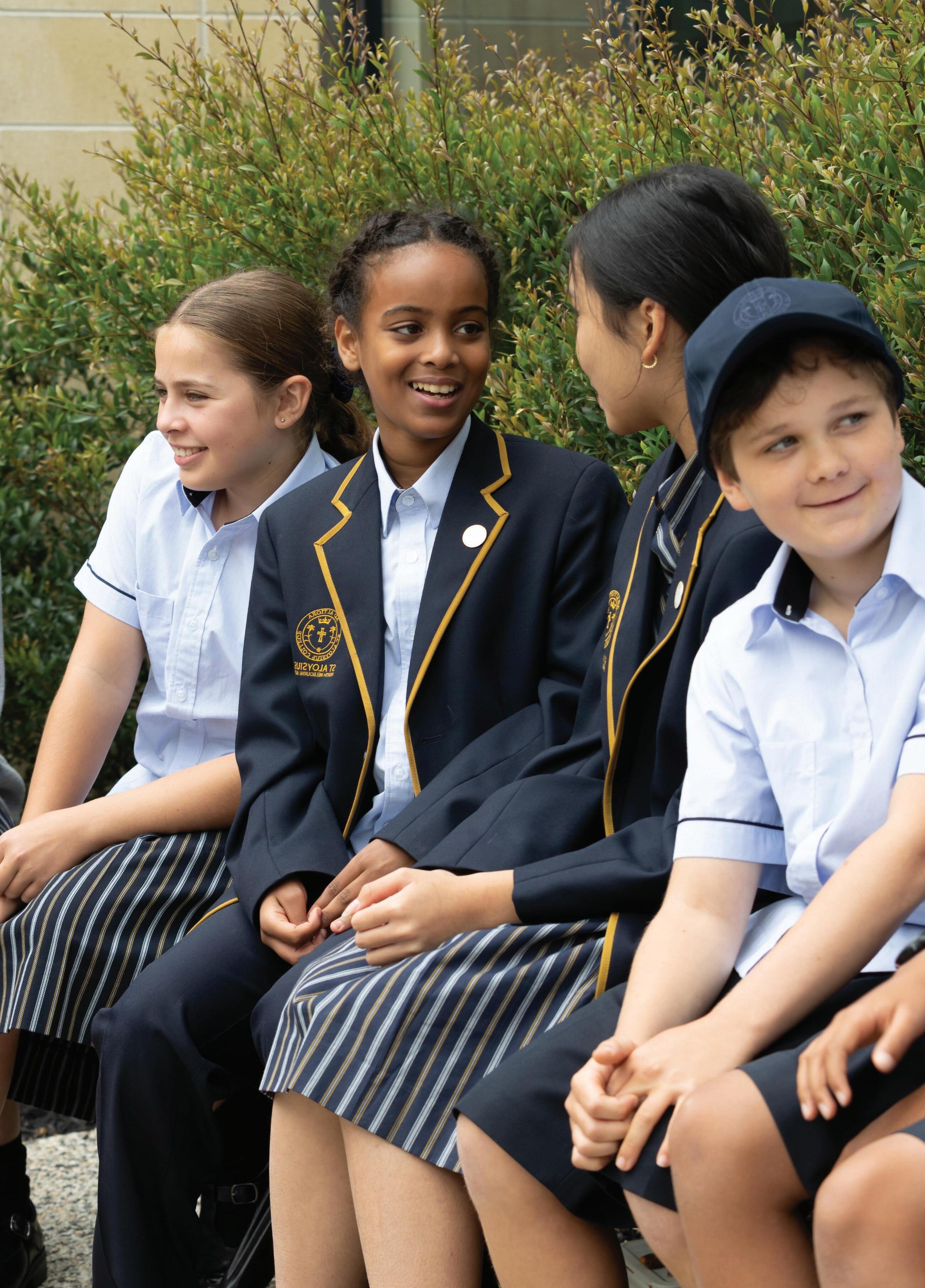




12620990-AV44-23
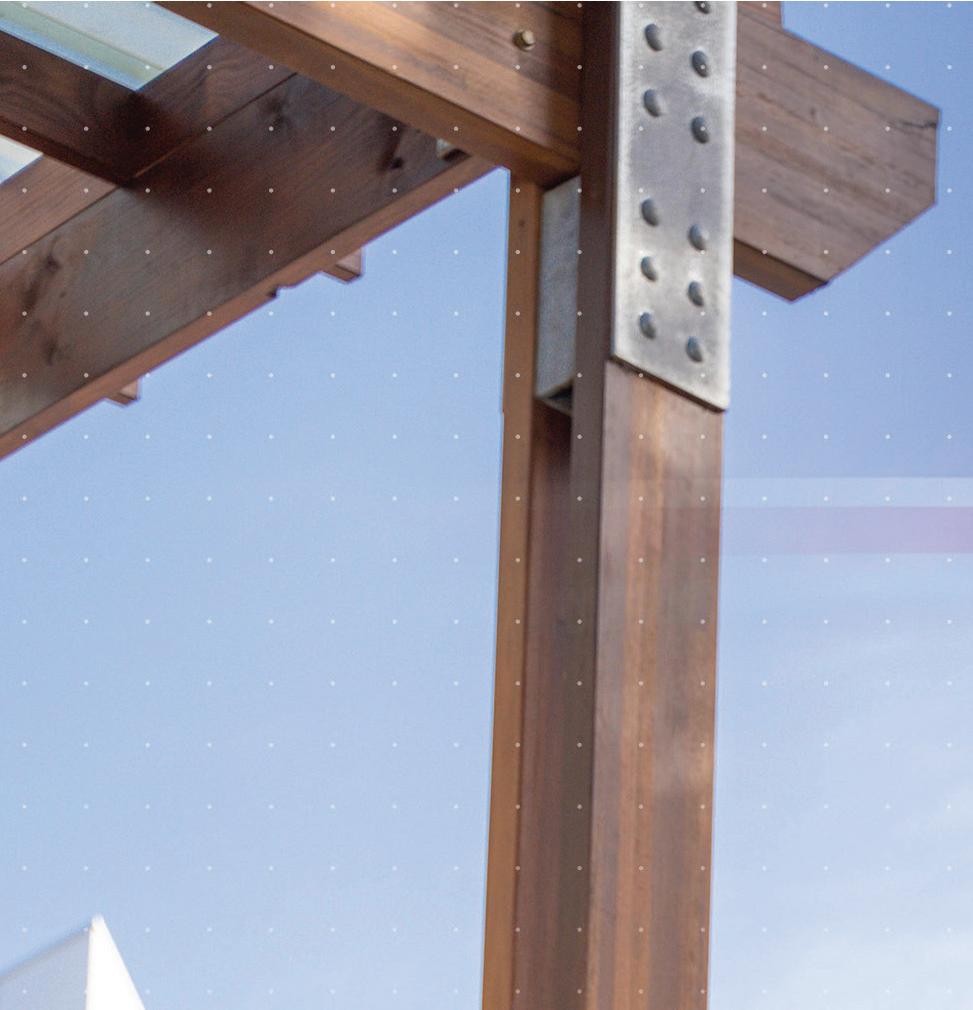











12605537-JB29-23














Secondary Education 113 12607047-JB29-23
St Helena Secondary College
ST HELENA Secondary College, situated in Eltham North, prioritizes holistic child growth. With a rich educational history, we aim to nurture globally-minded citizens ready for the digital era. Our core values - Respect, Responsibility, and Personal Best - foster connection in a secure and enriching learning space.

St Helena Secondary College is a highdemand school and the school of choice for many families. We know the transition from Primary School to Secondary School can be as daunting as it is exciting. Our highly experienced Transition team partner with families, students and primary schools to facilitate a smooth transition to our stand-alone Year 7 Junior School, quickly establishing new students as an integral part of our community.
Our ‘Strive’ program underpins holistic development through Learning Skills, Positivity, and Pathways streams, nurturing academics, emotional skills, and individualized routes.
The ACE program caters to gifted students, providing an enriched curriculum and potential university subject study in their final year.
The acclaimed music program, with 220+ students, excels in competitions, while our
Performing Arts team garners awards winning several Victorian Music Theatre Guild Awards and Lyrebird Theatre Awards.
The Sports Academy sharpens athletes in Football and Basketball, focusing on various aspects of skill and performance.
Diverse camps and tours enrich cultural and personal growth.
Our extensive subject range, including VCE, VM, and VET options, caters to diverse interests. Over 40 subjects are offered yearly, ensuring any and all pathway interest is catered for.
Secondary Education 114
Our ‘Strive’ program underpins holistic development through Learning Skills, Positivity, and Pathways streams, nurturing academics, emotional skills, and individualized routes.



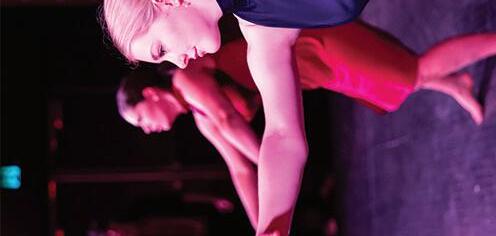






Secondary Education 115 12615603-AA44-23
The next Michelin chef?

St Joseph’s College
ST JOSEPH’S College focuses on academic excellence complemented by programs to enhance wellbeing, personal growth, spirituality and physical development. Our motto, ‘Agite Quae Didicistis’, translated as ‘Put into practice what you have learnt’, underpins our approach to a holistic education for boys in the 21st Century.

Innovative and progressive teaching methods are applied to maximise engagement and success. Our curriculum is designed specifically to cater for boys’ needs with a ‘hands on’ approach to learning. Our trademark Year 9 program operates at the Valdocco Campus within our beautiful grounds at the foot of the Dandenongs.
The College offers after school tuition four nights a week. The GATE (Gifted and Talented education) program provides students with opportunities for enrichment and acceleration. There are several programs that support students with special needs.
Students enjoy a range of extra-curricular opportunities including numerous interstate and overseas experiences.
Our Masterplan ‘Towards 2040 and Beyond – An Adventure in the Spirit’ responds to the challenges of 21st Century learning. State of the art Year 7, Science, STEM and Digital Technologies facilities offer the most incredible start to secondary school. Our senior students absolutely love the new Year 11 and 12 spaces which include collaborative Learning Hubs. Dynamic new Visual and Perform ing Arts facilities complement the skills and creative flare of young men. The College’s extensive sports facilities are undergoing redevelopment with an improved AFL Ground, a FIFA size Soccer Field and Hockey Pitch. To further complement the developments, eight tennis courts, cricket nets, running track and a range of field events are featured in the incredible expansions opening later this year.
As a member school of the Associated Catholic Colleges (ACC) competition, students enjoy opportunities in an extensive range of sports, debating, public speaking, arts and technology, chess, drama, music and rally days.
Our High-Performance Sports Program provides students with access to specialist coaching, skills development and mentoring.
The teacher-student, teacher-family and
student to peer relationships cultivated at the College are what truly set St Joseph’s College apart. Teaching respect within relationships is what prepares our boys for life.
The College works to ensure that students are equipped to effectively take up roles in a rapidly changing world. Our students are equipped with iPads and MacBooks from the beginning of their journey at the College. STEM, Digital Technologies and Robotics form part of our Learning Program. Digital Citizenship approaches enable students to embrace responsible citizenship within a global community.
The teacher-student, teacher-family and student to peer relationships cultivated at the College are what truly set St Joseph’s College apart.
We offer the best of both worlds – an outstanding VCE pathway and an impressive VCE Vocational Major pathway with vocational and trade options taking place on campus and externally. As experts in boys’ development, we focus on the growth of their academic skills, faith and spirituality, relationships and physical and emotional wellbeing.
Secondary Education 117
Students enjoy a range of extra-curricular opportunities including numerous interstate and overseas experiences.



Secondary Education 118 12603663-RR29-23
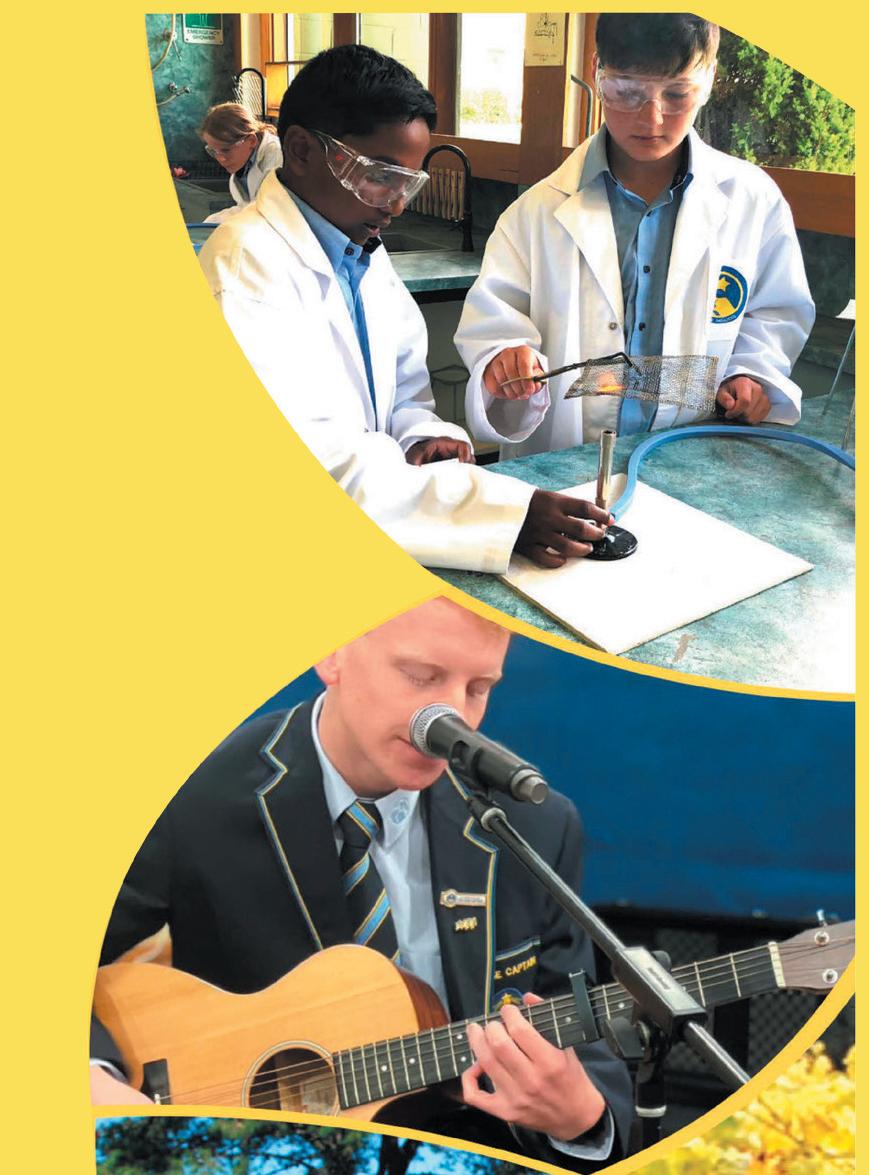






Secondary Education 119 Join us at one of our Enrolment Events: Tours 5 Brenock Park Drive, Ferntree Gully VIC 3156 p (03) 9756 3112 e enrolments@stjosephs.com.au stjosephs.com.au Days and 6 ‘Taster’ Days Virtual Tours with the Principal Enrolment Enquiry, Meet and Chat 12603696-RR29-23
St Monica’s College, Epping
ST MONICA’S College, Epping is a Catholic coeducational College based in the northern suburbs of Melbourne. The College was established in 1964 and has two campuses in Epping for students in years 7 to 12. We also have our country campus Ostia at Strath Creek.
Our facilities are first class and we continue to upgrade our buildings. This includes a new Science and Technology building to better serve our STEM students, the Cooinda Building which provides modern teaching and learning areas for students, as well as a complete rebuild of the Beehive, our technology centre based on Davisson Street campus.

Our College strongly endorses co-education. Co-education reflects the real-life realities your child will face. In the coeducational classroom, both female and male perspectives are explored, creating greater understanding between the sexes, more consideration of points of view, and increased development of individuals both intellectually and socially.
Our College offers one of the broadest curriculum choices of any school. Our subject choices will meet the needs of almost any student.
The College is also renowned for an excellent sporting program. Our choice of sports is
extensive and our coaching utilises experts in their sports. Our Sporting Academies ensure our athletes have whatever they need to excel in their chosen sport with gymnasiums on campus as well as a high-performance centre for advanced training.
Our College also offers an accelerated learning program for students. HORIZONS caters for highly able students through a program that meets their advanced educational needs.
Students with Autism Spectrum Disorder are well supported by our Arrunga Inclusion Program.
Our Performing Arts Faculty is also well regarded. Whether it be dance, drama or music, students have the opportunity to develop and showcase their talents. The College regularly has performances and showcases for our performing arts students.
St Monica’s College, Epping welcomes a diverse cohort of students with the assurance that we will ensure that each and every one has the best opportunity to be their best. At our College, no student is left behind.
Enrolments can be made anytime online as can bookings for Meet the Principal Tours.
www.stmonicas-epping.com
Secondary Education 120






Secondary Education 121 12557811-AV44-23


12632223-SM44-23

Secondary Education 123 12620535-SM44-23
Sunbury Downs College
SUNBURY Downs College is a vibrant Year 7 to 12 co-educational secondary college situated in the semi-rural town of Sunbury. We offer a rich educational experience in an environment that encourages the acquisition of excellent educational outcomes for all students.
Our College is an inclusive school offering a wide range of programs that cater for all students.
We have a strong emphasis on developing individual student wellbeing and positive interpersonal relationships. Students are at the centre of our teaching and learning.
Our curriculum provides a comprehensive teaching and learning program for students in core subjects: English, Mathematics, Science, Humanities, Health and Physical Education, Arts, Technology and Languages (Italian). We offer a range of VCE subjects including the VCE Vocational Major program in Years 11-12 which caters for students with an interest and passion for applied learning. We have a reputation for helping students achieve outstanding VCE results, further reinforcing to our students the school motto ‘Confidence to Achieve’.
Sunbury Downs College is the only secondary school in the area that offers an Accelerated Curriculum and Enrichment (ACE) program, extending students through a challenging curriculum including early commencement of VCE. The ACE program is a select entry course with enrolment from the feeder primary schools for students in Years 7-9. New enrolments are welcome to make enquiries about the suitability of this program for their children. We also offer a Scholars program for students in Years 10 and 11 to provide students with a range of opportunities in the Later Years.
Our College is an accredited International Student Program provider. This program has enabled the College to work closely with the Department of Education and the local community to engage in cultural immersion and promote diversity. The College has students and families from 45 different nationalities enrolled at our school, supporting a culturally and linguistically diverse learning environment.
Sunbury Downs College offers a wide range of inclusive activities and programs which cater to all students. Some of these include Debating and
Public Speaking, Maths Club, Drama Club and Choir. We have a well-established Student Voice program and passionate Captaincy team offering students the opportunity to develop leadership skills and contribute to our school in a positive and valuable way. Our College has a House and Sports program with whole school carnivals for Athletics and Swimming, and there are also Year Level and specialised camps and excursions. We offer instrumental music tuition and present a highly acclaimed musical production, enabling students to excel in the Performing Arts in an environment that fosters participation, responsibility and teamwork outside the classroom.
Sunbury Downs College is proud of the work and support provided to students and the wider Sunbury Downs College community by our wellbeing team, learning support team and Careers Coordinator. Wellbeing programs complement the teaching and learning and extracurricular program of the College as we work together to prepare young people to become lifelong learners. Learning Support focuses on assisting students with additional needs while the Careers Coordinator provides valuable advice as students successfully pathway into university, TAFE and the workforce.
Our College values of Respect, Resilience, Ambition and Community are embedded within our teaching and learning practice. These core values support a culture of participation and excellence based on the development of positive relationships and personal growth by all community members.
Secondary Education 124
This program has enabled the College to work closely with the Department of Education and the local community to engage in cultural immersion and promote diversity.
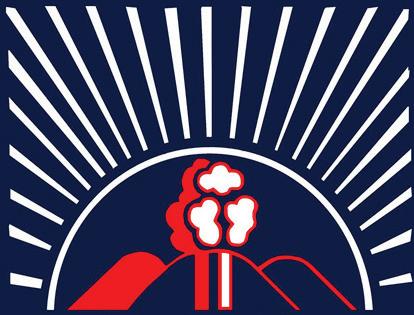




Secondary Education 125 Sunbury Downs College ‘Condence to Achieve’ Respect | Resilience | Ambi on | Community Aco-educ nalschoolwithdedicatedteacherswhoimplementinnova eideastos mulatelearning Contact 9744 0500 or sunbury.downs.sc@educa on.vic.gov.au 148-174 Mitchells Lane, Sunbury VIC 3429 Our work is underpinned by our College values; VCE results consistently at or above state average A safe, inclusive and secure learning environment Suppor ng student’s wellbeing by understanding the needs of each child Recently modernised & upgraded facili es Accelerated Curriculum & Enrichment (ACE) program Broad extra curricular program 12551075-AV44-22



Secondary Education 126 12627228-ET44-23





Secondary Education 127 12625196-ET44-23
Teaching children about teamwork
IN today’s interconnected and rapidly changing world, teamwork has become an essential skill that children need to learn from an early age. Teaching children about teamwork fosters a collaborative spirit, enhances social skills, promotes effective communication, and prepares them for success in both their personal and professional lives. The following explores the significance of instilling teamwork values in children and the benefits it brings to their overall development.
Collaboration and shared responsibility: Teaching children about teamwork instils in them the value of collaboration and shared responsibility. In a team, individuals learn to work together towards a common goal, pooling their strengths, skills, and ideas. By encouraging children to participate in team activities, they learn the importance of cooperating, compromising, and supporting one another. This helps them develop a sense of belonging, build stronger relationships, and understand that success is achieved collectively.
Enhanced social skills: Teamwork provides an ideal platform for children to enhance their social skills. It exposes them to diverse perspectives, enabling them to understand and appreciate different viewpoints. When working with others, children learn to respect and value their teammates’ opinions, practice empathy, and resolve conflicts constructively. These interpersonal skills are vital for building positive relationships throughout their lives, both personally and professionally.
Effective communication: Teamwork facilitates the development of effective communication skills in children. They learn to articulate their thoughts, listen actively to others, and express their ideas clearly and respectfully. By engaging in team discussions and collaborating on projects, children become proficient in communicating their viewpoints, leading to better understanding and cooperation within the team. Effective communication skills are essential for success in all aspects of life, from personal relationships to future careers.
Problem-solving and critical thinking: Teamwork exposes children to various problemsolving situations, encouraging them to think critically and find innovative solutions. Through
brainstorming sessions and collaborative decision-making processes, children learn to evaluate multiple options, analyse different perspectives, and arrive at well-informed conclusions. This nurtures their ability to think critically, adapt to different situations, and solve complex problems collectively, skills that are vital in a rapidly evolving world.

Preparation for future success: Teaching children about teamwork prepares them for success in their future endeavours. In today’s professional landscape, the ability to work effectively in teams is highly valued. Employers seek individuals who can collaborate, communicate, and cooperate with others to achieve organisational goals. By learning teamwork skills at an early age, children develop a competitive edge and a strong foundation for their future careers.
Teaching children about teamwork is of paramount importance. It equips them with vital skills such as collaboration, enhanced social skills, effective communication, problem-solving, and critical thinking abilities. These skills not only contribute to their personal development but also lay the groundwork for their future success in various aspects of life. By fostering a teamoriented mindset from a young age, we empower children to become responsible, empathetic, and effective contributors to their communities and the world at large.
Secondary Education 128
Team Work

Taylors Lakes Secondary College
TAYLORS Lakes Secondary College is a single campus, co-educational 7 to 12 Leading School in the Western Suburbs of Melbourne.

From the day it opened its doors in 1992 to the Brimbank community, the college has delivered outstanding, vibrant and innovative education.
We believe the success of our students is a result of carefully developed educational programs delivered by a highly qualified and committed staff in a positive learning environment in which all students are challenged and supported.
This is underpinned by a strong code of conduct, compulsory uniform and high expectations.
A positive and responsible approach to education fosters values of trust, tolerance and respect for others.
The structure of the college is based on a Junior Subschool (Years 7 & 8), Middle Subschool (Years 9 & 10) and Senior Subschool ( Years 11 & 12).
All students in the junior and middle years of schooling undertake all subjects across all domains.
There is also literacy and numeracy support programs offered in the Junior and Middle years, enhancement programs, including the LEAP Program, and a Football Academy within Health and Physical Education.
Taylors Lakes continues to create vibrant indoor and outdoor learning spaces. The college has built a new flexible learning centre, new inclusion centre, new library, study facilities, meetings, offices, additional IT classrooms, new performing arts centre, new futsal (soccer) courts and new canteen/eating shelter in the last few years to support the development of a challenging, innovative and enriched curriculum at each level.
Within every classroom, we provide every child, every opportunity to succeed.
With strong leadership, extensive guidance, counselling and tutoring, our students are inspired to aim high.
We are very proud of our students and their results.
Secondary Education 130
From the day it opened its doors in 1992 to the Brimbank community, the college has delivered outstanding, vibrant and innovative education.
















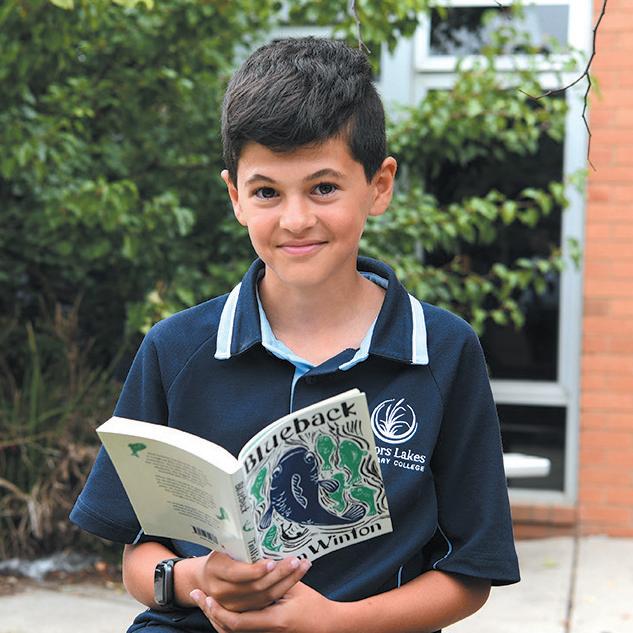







TAYLORS LAKES SECONDARY COLLEGE • A strong tradition of excellent VCE results • Comprehensive VCE, VET and Vocational Major programs • Learning Enhancement & Advancement Program (LEAP) • A Football (AFL and Soccer) Academy as part of Health and Physical Education • Performing Arts Program including Instrumental Music, Dance and School Production • Targeted programs at Year 7 to aid the transition of students • A supportive Careers Vocational Education program, including the placement of all students in tertiary or employment positions 9390 3130 taylors.lakes.sc@education.vic.gov.au For further information Students At Taylors Lakes Secondary College Experience: g ons EVERYMORNINGPARENTTOURS MORNINGWEDNESDAY FROM 9:30AM.ESSENTIAL.BOOKINGS 12619090-MS44-23 TaylorsLakesSecondary taylorslakessecondarycollege














Secondary Education 132 12628123-ET44-23











Secondary Education 133 12614649-ET44-23
WELLINGTON SECONDARY COLLEGE
The Wellington Way: CARING for others STRIVING for excellence LEARNING for life



Wellington Secondary College is a large, single campus, co-educational school located in the City of Monash.



Our ambitious building program and master plan has finally reached fruition. Following the opening of our beautiful Vanellus Centre in 2019 – a doubly-storey Administration and Learning Hub – we opened, in 2021, the state-of-the-art Wellbeing Centre and Senior School Precincts which also incorporated our new International Centre. By the middle of 2022, the final piece of the jigsaw was in place with the completion of the Technology and STEM Precinct, and the much-awaited Middle School Precinct.
The school also has two Gymnasiums, a Performing Arts complex (including a 288-seat theatre), a Mathematics Hub and remodelled Visual Arts, Technology and Science blocks. The grounds include basketball and netball courts and an oval.
The College draws students from a wide selection of south-eastern suburbs. Our current enrolment

Secondary Education 134
91 Police Road, Mulgrave 3170
12593959-ET14-23
is approximately 1680 students. This includes an International Student Program that caters for up to 100 students.

Wellington offers an approved Year 7 -10 curriculum framework, based upon the Victorian Curriculum, which is differentiated to meet student point of need.
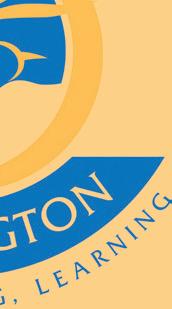



Senior students may study a wide range of Victorian Certificate of Education (VCE) subjects, including the VCE Vocational Major (previously the Victorian Certificate of Applied Learning). A range of other senior pathway options are available through: Vocational Education and Training subjects (VET), the Virtual School Victoria (VSV) and the Centre For Higher Education Studies (CHES).

Due to the multicultural nature of the community, many students pursue the community language option through Victorian School of Languages (VSL) or other providers.
For more information about school tours and our Open Night, please refer to the school website: wellingtonsc.vic.edu.au. These will provide a great opportunity for you to learn first-hand about ‘The Wellington Way’ and the ‘Caring, Striving and Learning’ values that drive our supportive and inclusive culture.
Phone: 9547 6822
wellingtonsc.vic.edu.au
Secondary Education 135
12615597-AA44-23
Secondary Education 13612567536-DL44-22

Secondary Education 137 12563760-DL44-22
Wyndham Central College
THE first nationally recognized AVID Site of Distinction (2019).
Wyndham Central College is proudly preparing the leaders of tomorrow to be agile, innovative and creative problem solvers, through a range of excellent education programs and learning opportunities and teaching strategies.
AVID
Wyndham Central College is the first secondary school in Australia to attain “Site of Distinction” AVID Certification.
AVID is a schoolwide program that uses research-based, best teaching and learning strategies to actively engage the student in their learning. While all students at Wyndham Central College are AVID students, it is also offered as an elective from Year 9 - Year 12.
AVID helps all students to believe that they can achieve. It provides students with the tools, skills and knowledge to be successful students, to be university, work and career ready and to be active global citizens.
STEM
Wyndham Central College has a STEM Academy. The STEM Academy’s curriculum has been designed by a team of highly qualified teachers and industry experts.

Students entering the STEM Academy will participate in cutting edge specialist programs that include: Robotics and Coding - Electronics3D Printing - Engineering - 3D Modelling and Gaming. Students work with Industry and the Wyndham Tech School at Victoria University to gather and process data to solve real life problems and potential issues in the community and beyond.
Enrichment
At Wyndham Central College, our Enrichment Program provides an optimal learning environment to address the unique social, emotional, and academic needs of students that display a talent in a particular area.
The program extends enrichment opportunities for students both within and beyond the classroom. All students in the Enrichment Program develop a Project over the course of each year. The project centres on developing an authentic product or performance, and allows students to build excellence in a real-world
context. Enrichment experiences are interwoven into the students’ existing program with extracurricular activities playing an important role in supporting students’ talent development.
The Enrichment experience is extended to students at the College through their participation in the Victorian High Ability Program for those who have been selected to this program by the Department of Education. The Enrichment Series is offered for other students who show high ability in learning areas including English, Science, Math, The Arts, Sport and Health, Humanities, Technology and Languages.
Spanish Immersion Program (SIP)
The Spanish Immersion bilingual program (SIP) at Wyndham Central Secondary College is a wellresearched approach for promoting bi-literacy, bilingualism, and biculturalism for students. The underlying goal is to prepare students to be global citizens with abilities to listen, speak, read, and write in Spanish.
Our students develop an appreciation for Spanish which is among the most used language in the world and their cultures. Students participate in a rigorous academic program that extends students’ language skills and vocabulary whilst completing a percentage of their core subjects including mathematics, science and humanities in Spanish.
Wyndham Central College’s mission is to develop achievement opportunities and prepare all students for post-secondary education, skills development and work readiness so they can participate in a global community as productive citizens.
Secondary Education 138




















































































Secondary Education 139 AVID’s Mission is to close the achievement gap by preparing all students for University readiness and success in a global society. Shaws Road, Werribee VIC 3030 Phone: 03 9741 4911 AVID Site of Distinction First Secondary School in Australia www.wyndhamcentralsc.vic.edu.au 12549906-JC14-23 P h o n e : 0 3 8 7 4 4 8 9 0 0 Phone: 03 8744 8900 03 8744 8900 for
Xavier College
XAVIER College is an educational community within the Jesuit network of schools and universities. As a school that enrols boys, Xavier is committed from the commencement of a boy’s education to developing respectful and aspirant learners.
We encourage the boys to speak up and to express themselves; creating such a culture is important, especially for young men. There is a strong focus on pastoral care in which we seek to build a school community in which each student is known and valued as a unique creation, and in which their individual talents and interests are nourished and respected.

Central to our students’ education is Cura Personalis, the ‘care of the individual’, and our House system which offers great support and an embedded sense of community which characterises the experience of a Xavier education. Beginning in the Early Years and continuing through to the Senior Years, students are allocated a House and participate in friendly competitions, fundraising initiatives and community-building activities together. In the Senior Years, students experience a vertical House system. From Year 9, students are allocated into one of 10 Houses, and as part of that, a Tutor Group. Tutor Groups, comprised of up to 10 students from Years 9-12 from within the same House, are overseen by an allocated Tutor for the entirety of this four-year journey. The Tutor Group system not only provides students with peer support from younger and older students, but the Tutor also provides a consistent point of contact and source of pastoral support.
Extending upon our co-educational Kindergarten for 3- and 4-year-olds, Xavier is moving to a 2-year staged model of educational delivery from Prep to Year 12. This will coincide with a comprehensive building program to enhance every aspect of each campus.
Our key entry point of Year 7 will be accommodated in an exceptional, new state-ofthe-art Year 7-8 learning precinct on the Senior Campus, opening for the start of 2024. Preceding this will be a seven year journey through an amazing, brand new P-6 Junior School.
As we welcome the new enrolments of Year 7s and 8s onto the Senior Campus, we are highly driven to ensure these new and reimagined
facilities enable the continued fostering of the human connections and relationships that have made Xavier the much-loved College that it has become throughout many generations.
We live in an increasingly interconnected world; environment, security, economy; in a real sense our graduates become citizens of the world, and a Xavier education provides opportunities for our students to engage with the global context. The Old Xaverians’ Association (OXA) exists to promote the welfare and advancement of Xavier College through the activities of the past students. It seeks to remain engaged with as many past students of Xavier College as possible through reunions, events and ongoing communication. Indeed, as part of the Jesuit network of schools and universities that educates some two million students worldwide, Xavier is well positioned to take on this international dimension, through international immersions, tours and exchanges, amongst others.
Secondary Education 140
It seeks to remain engaged with as many past students of Xavier College as possible through reunions, events and ongoing communication.










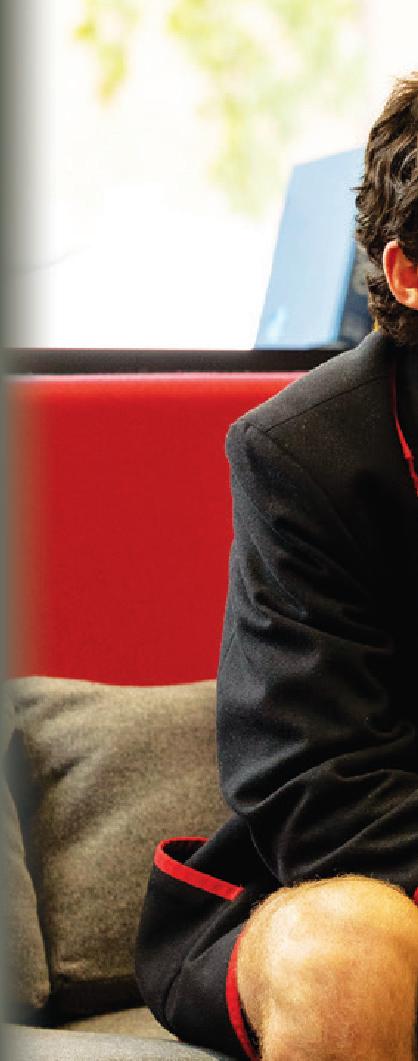

Secondary Education 141 12625619-JB44-23
The next Rembrandt?

Locality Guide
East Blackburn High School .................................................10 & 11
Boronia K-12 College .......................................................12 & 13

Camberwell High School ........................................................21
Highvale Secondary College ....................................60 & 61
Mater Christi College .....................................................78 & 79
Norwood Secondary College ....................................86 & 87
Nunawading Christian College ...............................90 & 91
Sacre Coeur ..........................................................................98 & 99
St Andrew’s Christian College ..............................112 & 113
Xavier College ...............................................................140 & 141
South East
Berwick College .....................................................................8 & 9
Carrum Downs Secondary College .......................22 & 23
Cranbourne East Secondary College ...................30 & 31
Cranbourne Secondary College ..............................28 & 29
Dandenong High School .............................................36 & 37
De La Salle College ........................................................38 & 39
Gleneagles Secondary College ................................46 & 47
Haileybury ..................................................50, 51 & back cover
Hallam Secondary College.........................................52 & 53
Harkaway
.............................................................6 & 7
Hume Central Secondary College .........................64 & 65
St Aloysius College ......................................................110 & 111
North East
Charles La Trobe College ...........................................24 & 25
Lalor North Secondary College ................................70 & 71
Marymede Catholic College .....................................80 & 81
St Helena Secondary College ................................114 & 115
St Monica’s College, Epping ...........................Front cover, 2, 3, 120 & 121
William Ruthven Secondary College...............136 & 137
West
Braybrook College ............................................................14 & 15
Bundoora Secondary College ....................................18 & 19
CRC Caroline Springs .......................................................32 & 33
Essendon Keilor College .............................................40 & 41
Hoppers Crossing Secondary College ................62 & 63
MacKillop College.............................................4, 5, 146 & 147
Marian College ...................................................................76 & 77
Parade College ...................................................................94 & 95
Rosehill Secondary College .......................................96 & 97
Simonds Catholic College .....................................104 & 105
Sunshine College .........................................................126 & 127
Taylors Lakes Secondary College ......................130 & 131
Victoria University Secondary College ..........132 & 133
Wyndham Central College.....................................138 & 139
North West
CRC St. Albans ..................................................................34 & 35
Copperfield College ..................................................................27
Gladstone Park Secondary College ......................44 & 45
Heathdale Christian College ....................................58 & 59
Marymede Catholic College .....................................56 & 57
Salesian College - Sunbury ...................................100 & 101
St Albans Secondary College ............................................107
Sunbury Downs College ..........................................124 & 125
Secondary Education 143
Hills College................................................54 & 55 Keysborough College ...............................................................67 Lakeside College ..............................................................68 & 69
Nossal
Assumption
Lyndale Secondary College ........................................72 & 73 Noble Park Secondary College ................................82 & 83
High School ........................................................88 & 89 Scoresby Secondary College ................................102 & 103 St Joseph’s College .............................................117, 118 & 119 St Peter’s College..........................................................122 & 123 Wellington Secondary College ............................134 & 135 North
College





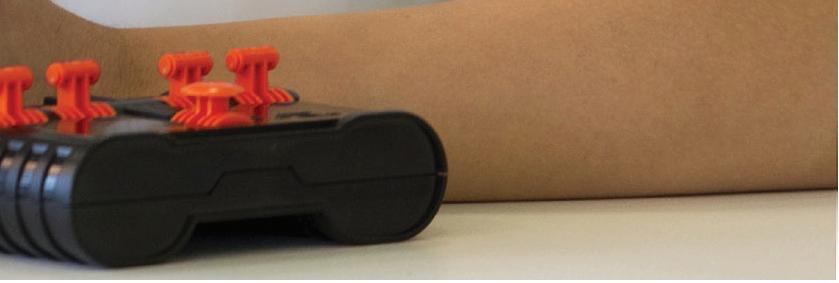

Sec Seecond o ond nd n ar ary ry y Ed Educa uc ucacattio io tiion 14 4 1 4
87
Nossal High School ................................................................88 & 89
Nunawading Christian College.......................................90 & 91
Nurturing maths skills .....................................................................93
Parade College ...........................................................................94 & 95
Rosehill Secondary College ...............................................96 & 97
Sacre Coeur ..................................................................................98 & 99
Salesian College – Sunbury ..........................................100 & 101
Scoresby Secondary College ........................................102 & 103
Simonds Catholic College .............................................104 & 105
St Albans Secondary College ....................................................107
St Aloysius College ..............................................................110 & 111
St Andrew’s Christian College ......................................112 &
Secondary Education 145 Contents Assumption College....................................................................6 & 7 Benefits of Extracurricular activities ............................16 & 17 Benefits of LOTE .................................................................................66 Berwick College .............................................................................8 & 9 Blackburn High School .........................................................10 & 11 Boronia K-12 College ...............................................................12 & 13 Braybrook College ....................................................................14 & 15 Bundoora Secondary College ............................................18 & 19 Camberwell High School ................................................................21 Carrum Downs Secondary College ...............................22 & 23 Charles La Trobe College ...................................................24 & 25 Copperfield College ..........................................................................27 Cranbourne East Secondary College ...........................30 & 31 Cranbourne Secondary College ......................................28 & 29 CRC Caroline Springs ...........................................................32 & 33 CRC St. Albans ..........................................................................34 & 35 Dandenong High School .....................................................36 & 37 De La Salle College .................................................................38 & 39 Essendon Keilor College .....................................................40 & 41 Gladstone Park Secondary College ..............................44 & 45 Gleneagles Secondary College ........................................46 & 47 Grossek’s View ...........................................................................48 & 49 Haileybury ..........................................................50, 51 & back cover Hallam Secondary College.................................................52 & 53 Harkaway Hills College........................................................54 & 55 Heathdale Christian College ............................................58 & 59 Highvale Secondary College ............................................60 & 61 Hoppers Crossing Secondary College........................62 & 63 Hume Central Secondary College .................................64 & 65 Keeping our planet clean & healthy.........................................26
College .......................................................................67
College ......................................................................68 & 69
North Secondary College ........................................70 & 71
listings ..................................................................................143
Secondary College ................................................72 & 73
College.....................................................4, 5, 146 & 147
College ...........................................................................76 & 77
Keysborough
Lakeside
Lalor
Locality
Lyndale
MacKillop
Marian
Marymede Catholic College .............................................80 & 81
Mater Christi College ............................................................78 & 79 Noble Park Secondary College ........................................82 & 83
Noone Image Wear ............................................................................85
Norwood Secondary College ............................................86 &
113 St Helena Secondary College ........................................114 & 115 St Joseph’s College .....................................................117, 118 & 119 St Monica’s College, Epping ...............................Front cover, 2, 3, 120 & 121 St Peter’s College..................................................................122 & 123 STEM is more than just science & maths ..................56 & 57 Students & problem solving .........................................................20 Students & the Educational Revolution.......................74 & 75 Sunbury Downs College ..................................................124 & 125 Sunshine College .................................................................126 & 127 Sustaining physical education up to VCE................42 & 43 Taylors Lakes Secondary College ..............................130 & 131 Teaching children about teamwork .......................................128
the Gender Disparity ..............................108 & 109 Victoria School Guides Website .............................................106
University Secondary College ..................132 & 133
Secondary College ....................................134 & 135 William Ruthven Secondary College.......................136 & 137
Central College.............................................138 & 139 Xavier College .......................................................................140 & 141
Unraveling
Victoria
Wellington
Wyndham
ACN
to Star News Group Pty Ltd. For our terms and conditions
www.starcommunity.com.au
Next edition: February 2024 For bookings please contact: Themes Media on 5945 0666 or Email: katrina.mihai@starnewsgroup.com.au Published by Star News Group Pty Ltd
005 848 108. Publisher/Managing Director, Paul Thomas. All material is copyright
please visit


























































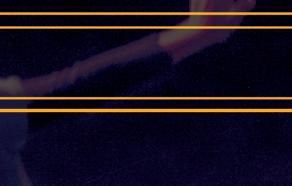








12635438-KG44-23

























































12612407-KG44-23
More than a passionate thinker.


Anay is a passionate thinker and Australian Problem-Solving Champion. His big mission in life? To join the






Talented in Music, the Arts, Science and Humanities, Anay loves to follow his passions both in and outside of the classroom. Whether it’s solving a Rubik’s cube or complex problems, we’re here to launch all our students’ passions to new heights.


haileybury.com.au
12606414-SM44-23




































































































































































































 Henry
Henry







































































 Timothy Cottrell PRINCIPAL
Timothy Cottrell PRINCIPAL





























































































































































































































































































































































































































































































































































